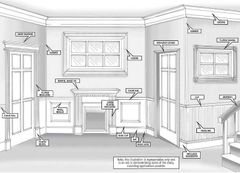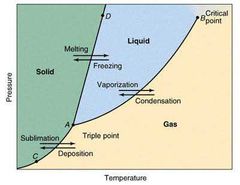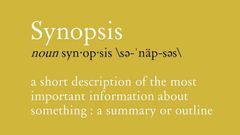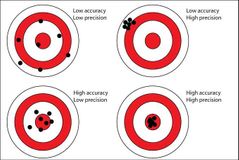![]()
![]()
![]()
Use LEFT and RIGHT arrow keys to navigate between flashcards;
Use UP and DOWN arrow keys to flip the card;
H to show hint;
A reads text to speech;
311 Cards in this Set
- Front
- Back
- 3rd side (hint)
|
Home |
homemade adjective UK /ˌhəʊmˈmeɪd/ US /ˌhoʊmˈmeɪd/ made at home and not bought from a shop: homemade bread/cakes homemade wine homesick adjective UK /ˈhəʊm.sɪk/ US /ˈhoʊm.sɪk/ unhappy because of being away from home for a long period: As I read my mother's letter, I began to feel more and more homesick. homecoming noun UK /ˈhəʊmˌkʌm.ɪŋ/ US /ˈhoʊmˌkʌm.ɪŋ/ homecoming noun (ARRIVAL) [ C ] the fact of a person arriving home after being away for a long time: They planned a special celebration for her homecoming. hometown noun [ C ] UK /ˈhəʊm.taʊn/ US /ˈhoʊm.taʊn/ the town or city that a person is from, especially the one in which they were born and lived while they were young: He was born in Miami, but he considers New York his hometown since he's lived there most of his life. homegrown adjective UK /ˌhəʊmˈɡrəʊn/ US /ˌhoʊmˈɡroʊn/ from your own garden: homegrown vegetables If someone or something is homegrown, he, she, or it belongs to or was developed in your own country: She's a homegrown talent. home page noun [ C usually singular ] UK /ˈhəʊm ˌpeɪdʒ/ US /ˈhoʊm ˌpeɪdʒ/ the first page of a website, which usually gives an introduction to the business or organization it belongs to and links (= connections) to more detailed information on other pages a web page that you choose to appear on your computer screen when you first connect to the internet: To make this your home page, click here. homeless adjective UK /ˈhəʊm.ləs/ US /ˈhoʊm.ləs/ C1 without a home: Accommodation needs to be found for thousands of homeless families. |
|
|
|
House |
houseproud adjective mainly UKUK /ˈhaʊs.praʊd/ US /ˈhaʊs.praʊd/ very worried about your house being completely clean and tidy, and spending a lot of time making it so houseplant noun [ C ] UK /ˈhaʊs.plɑːnt/ US /ˈhaʊs.plænt/ (UK also pot plant) a plant that is grown in a container inside a house housebound adjective UK /ˈhaʊs.baʊnd/ US /ˈhaʊs.baʊnd/ unable to leave your home, especially because you are ill: She's been housebound since the accident housewarming noun [ C ] UK /ˈhaʊs.wɔː.mɪŋ/ US /ˈhaʊs.wɔːr.mɪŋ/ (also housewarming party) a party that you give when you move into a new house: We're having a housewarming on Friday if you'd like to come. |
|
|
|
Life |
lifelong
adjective [ before noun ]
UK /ˈlaɪf.lɒŋ/ US /ˈlaɪf.lɑːŋ/
C2 lasting for the whole of a person's life:
She was a lifelong member of the Labour party.
a lifelong habit
life-size adjective
UK /ˈlaɪf.saɪz/ US /ˈlaɪf.saɪz/ (also life-sized, UK /ˈlaɪf.saɪzd/ US )
A life-sized work of art or model is the same size as the person or thing that it represents:
a life-size statue of an elephant
life expectancy noun [ C usually singular or U ]
UK /ˈlaɪf ɪkˌspek.tən.si/ US /ˈlaɪf ɪkˌspek.tən.si/
the length of time that a living thing, especially a human being, is likely to live:
Life expectancy in Europe increased greatly in the 20th century.
life insurance
noun [ U ]
UK /ˈlaɪf ɪnˌʃɔː.rəns/ US /ˈlaɪf ɪnˌʃɔːr.əns/
(UK also life assurance)
a system in which you make regular payments to an insurance company in exchange for a fixed amount of money that will be paid to you when you reach a certain age, or paid to someone you have named, usually a member of your family, when you die
|
|
|
|
noun [ C ] UK /ˈwɔː.tə.fɔːl/ US /ˈwɑː.t̬ɚ.fɑːl/ B1 water, especially from a river or stream, dropping from a higher to a lower point, sometimes from a great height |
waterfall |
|
|
|
shabby |
adjective UK /ˈʃæb.i/ US /ˈʃæb.i/ shabby adjective (BAD CONDITION) C1 looking old and in bad condition because of being used for a long time or not being cared for: He wore a shabby old overcoat. Her home is a rented one-bedroom apartment in a shabby part of town. The refugees were shabby (= wore old clothes in bad condition) and hungry. |
|
|
|
strike gold |
[ T ] informal
to do something that makes you very successful or rich, especially in a way that is unexpected:
After a slow start, the carmaker finally struck gold in the US. |
نقشت معاه |
|
|
blankly |
adverb
UK /ˈblæŋk.li/ US /ˈblæŋk.li/
blankly adverb (NO INTEREST)
in a way that shows no understanding, interest, or emotion:
He just stared blankly at me.
|

|
|
|
gesture |
noun [ C ]
UK /ˈdʒes.tʃər/ US /ˈdʒes.tʃɚ/
gesture noun [C] (MOVEMENT)
C1 a movement of the hands, arms, or head, etc. to express an idea or feeling:
The prisoner raised his fist in a gesture of defiance as he was led out of the courtroom.
She made a rude gesture at the other driver. verb [ I ] UK /ˈdʒes.tʃər/ US /ˈdʒes.tʃɚ/
C2 to use a gesture to express or emphasize something:
When he asked where the children were, she gestured vaguely in the direction of the beach.
He made no answer but walked on, gesturing for me to follow.
|

|
|
|
weathered |
adjective UK /ˈweð.əd/ US /ˈweð.ɚd/ changed in colour or form over a period of time because of the effects of sun, wind, or other weather conditions : weathered stone/tiles His silver hair was cut short around his weathered face. |
|
|
|
grasping |
adjective disapproving UK /ˈɡrɑː.spɪŋ/ US /ˈɡræs.pɪŋ/ (of people) always trying to get and keep more of something, especially money: a grasping, greedy man |
|
|
|
venture |
noun [ C ]
UK /ˈven.tʃər/ US /ˈven.tʃɚ/
C2 a new activity, usually in business, that involves risk or uncertainty:
She advised us to look abroad for more lucrative business ventures.
There are many joint ventures between American and Japanese companies.
venture
verb [ I usually + adv/prep, T ]
formalUK /ˈven.tʃər/ US /ˈven.tʃɚ/
C2 to risk going somewhere or doing something that might be dangerous or unpleasant, or to risk saying something that might be criticized:
She rarely ventured outside, except when she went to stock up on groceries.
As we set off into the forest, we felt as though we were venturing (forth) into the unknown.
She tentatively ventured the opinion that the project would be too expensive to complete, but the boss ignored her.
|
|
|
|
pass away |
— phrasal verb with pass verb UK /pɑːs/ US /pæs/ B2 polite expression for die : She's terribly upset because her father passed away last week. |
|
|
|
skip |
noun [ C ]
UK /skɪp/ US /skɪp/
skip noun [C] (CONTAINER)
UK (US trademark Dumpster) a large metal container into which people put unwanted objects or building or garden waste, and which is brought to and taken away from a place by a special truck when people ask for it
verb (AVOID) B2 [ T ] informal to not do or not have something that you usually do or that you should do; to avoid:
I'm trying to lose weight, so I'm skipping (= not eating) lunch today.
US Should parents have to pay if their child skips school?
US I skipped class and went to the park instead. verb (MOVE) [ I usually + adv/prep ] to move lightly and quickly, making a small jump after each step:
She watched her little granddaughter skip down the path.
The lambs were skipping about in the field.
|

|
|
|
mousse |
noun [ C or U ] UK /muːs/ US /muːs/ mousse noun [C or U] (FOOD) a light cold food made from eggs mixed with cream: chocolate mousse salmon mousse |

|
|
|
how come? |
informal
C1
used to ask how or why something has happened:
So how come you missed the train?
"We had to stop in Birmingham." "How come?"
|
In this question we don't use axillary verb for question. |
|
|
horde |
noun
often disapproving
UK /hɔːd/ US /hɔːrd/
[ C ] a large group of people:
Hordes of students on bikes made crossing the road difficult.
in their hordes informal
in very great numbers:
When they heard the concert was free, they came in their hordes.
|
|
|
|
notorious |
adjective UK /nəʊˈtɔː.ri.əs/ /nəˈtɔː.ri.əs/ US /noʊˈtɔːr.i.əs/ C1 famous for something bad: one of Mexico's most notorious criminals The company is notorious for paying its bills late. |
|
|
|
fend |
verb
UK /fend/ US
fend for yourself
to take care of and provide for yourself without depending on anyone else:
The corporation will no longer receive a government subsidy, and must fend for itself financially.
|
لرعاية نفسك وإعالة نفسك دون الاعتماد على أي شخص آخر:
لن تتلقى الشركة بعد الآن دعمًا (ماليا )حكوميًا ، ويجب أن تدافع عن نفسها مالياً. |
|
|
beg |
verb UK /beɡ/ US /beɡ/ -gg- B2 [ I or T ] to make a very strong and urgent request: They begged for mercy. [ + speech ] "Please, please forgive me!" she begged (him). [ + obj + to infinitive ] He begged her to stay, but she simply laughed and put her bags in the car. B2 [ I or T ] to ask for food or money because you are poor: There are more and more homeless people begging on the streets these days. She had to beg for money and food for her children. He begged a loan from his boss. beggar noun [ C ] UK /ˈbeɡ.ər/ US /ˈbeɡ.ɚ/ a poor person who lives by asking others for money or food UK informal a person, especially when you are expressing an opinion about something that they have done, or that has happened to them: You've won again, you lucky beggar. Those children have been running about in my rose garden again, the little beggars (= annoying people)! |
|
|
|
approach |
verb (DEAL WITH) B2 [ T ] to deal with something: I'm not sure how to approach the problem. More examples SMART Vocabulary: related words and phrases approach verb (COMMUNICATE) [ T ] to speak to, write to, or visit someone in order to do something such as make a request or business agreement: We've just approached the bank for/about a loan. She's been approached by a modelling agency. |
|
|
|
orphanage |
noun [ C ] UK /ˈɔː.fən.ɪdʒ/ US /ˈɔːr.fən.ɪdʒ/ a home for children whose parents are dead or unable to care for them |
|
|
|
adoption |
noun
UK /əˈdɒp.ʃən/ US /əˈdɑːp.ʃən/
adoption noun (TAKING CHILD)
B2 [ C or U ]
the act of legally taking a child to be taken care of as your own:
She was homeless and had to put her child up for adoption (= ask for the child to be taken by someone else as their own).
The last ten years have seen a dramatic fall in the number of adoptions.
|
|
|
|
illiterate |
adjective
UK /ɪˈlɪt.ər.ət/ US /ɪˈlɪt̬.ɚ.ət/
C2 unable to read and write:
A surprising percentage of the population is illiterate.
Compare innumerate
|
innumerate adjective UK /ɪˈnjuː.mər.ət/ US /ɪˈnuː.mɚ.ət/ unable to understand and use numbers in calculations percentage of: نسبة من |
|
|
vivid |
adjective
UK /ˈvɪv.ɪd/ US /ˈvɪv.ɪd/
B2 Vivid descriptions, memories, etc. produce very clear, powerful, and detailed images in the mind:
He gave a very vivid and often shocking account/description of his time in prison.
He's one of those people with a very vivid imagination - every time he hears a noise he's convinced it's someone breaking in.
|
|
|
|
multiply |
verb UK /ˈmʌl.tɪ.plaɪ/ US /ˈmʌl.tə.plaɪ/ [ T or I ] MATHEMATICS specialized to add a number to itself a particular number of times: If you multiply seven by 15 you get 105. When you multiply two odd numbers, is the answer always odd? I remember learning how to multiply and divide. |
|
|
|
come up with sth |
— phrasal verb with come verb UK /kʌm/ US /kʌm/ came | come B2 to suggest or think of an idea or plan: She's come up with some amazing scheme to double her income. |
|
|
|
radius |
noun [ C ]
UK /ˈreɪ.di.əs/ US /ˈreɪ.di.əs/
plural radii
radius noun [C] (DISTANCE)
(the length of) a straight line joining the centre of a circle to its edge or the centre of a sphere to its surface:
The radius of this wheel is 30 cm..
This wheel has a radius of 30 cm.
|

circumference noun [ C or U ] UK /səˈkʌm.fər.əns/ US /sɚˈkʌm.fɚ.əns/ diameter noun [ C or U ] UK /daɪˈæm.ɪ.tər/ US /daɪˈæm.ə.t̬ɚ/ |
|
|
bang |
noun [ C ]
UK /bæŋ/ US /bæŋ/
bang noun [C] (NOISE)
B2 a sudden very loud noise:
The window slammed shut with a loud bang.
bang verb (NOISE)
B2 [ I or T ] to (cause something to) make a sudden very loud noise or noises:
She banged her fist angrily on the table.
Outside a door was banging in the wind.
He could hear someone banging at the door.
I could hear her in the kitchen banging about (= doing things noisily).
|
|
|
|
could do with sth |
informal If something could do with something, it needs it very much: This place could do with a good cleaning. |
|
|
|
do (sth) up
|
— phrasal verb with do verb
UK /də/ /du/ /duː/ US /də/ /du/ /duː/ did | done
UK to fasten something or become fastened:
Can you help me to do up my dress?
Do your shoes/laces up before you trip over. رباط الحذاء
These trousers must have shrunk - I can't do them up. تقلص
These trousers won't do up.
(REPAIR) B2 to repair or decorate a building so that it looks attractive:
I'd like to buy a run-down house and do it up.
(WRAP)
UK to wrap something in paper:
She always does her presents up beautifully in gold and silver paper.
|
undo
verb [ T ]
UK /ʌnˈduː/ US /ʌnˈduː/
present participle undoing | past tense undid | past participle undone
undo verb [T] (UNFASTEN)
B2 to unfasten something that is fastened or tied:
Can someone help me to undo my seat belt? Run-down buildings or areas are in very bad condition: a run-down building/cemetery [ after verb ] tired and not healthy, especially because of working too much: My doctor said I was looking run-down.
|
|
|
make sth up |
(INVENT)
B2 to invent something, such as an excuse or a story, often in order to deceive:
I made up an excuse about having to look after the kids.
My dad was always really good at making up stories.
|
|
|
|
board |
UK /bɔːd/ US /bɔːrd/ board verb (GET ON) B1 [ I or T ] to get onto or allow people to get onto a boat, train, or aircraft: At London airport she boarded a plane to Australia. Will passengers waiting to board please go to the ticket counter? |
|
|
|
colloquial |
adjective UK /kəˈləʊ.kwi.əl/ US /kəˈloʊ.kwi.əl/ (of words and expressions) informal and more suitable for use in speech than in writing: colloquial speech |
|
|
|
air conditioning |
noun [ U ] UK /ˈeə kənˌdɪʃ.ən.ɪŋ/ US /ˈer kənˌdɪʃ.ən.ɪŋ/ B1 the system used for keeping the air in a building or vehicle cool: I wish my car had air conditioning. |
|
|
|
bumpy |
adjective
UK /ˈbʌm.pi/ US /ˈbʌm.pi/
not smooth:
We drove along a narrow, bumpy road.
It might be a bumpy flight (= an uncomfortable and rough flight) because there's a lot of air turbulence ahead. |
turbulence noun [U] (AIR/WATER MOVEMENT) UK /ˈtɜː.bjə.ləns/ US /ˈtɝː.bjə.ləns/ strong sudden movements within air or water |
|
|
head up |
— phrasal verb with head verb
UK /hed/ US
[ T ] HR to lead or manage a team, department, organization, etc.:
He was approached to head up Barclays' investment banking business.
|
|
|
|
pastime |
noun [ C ]
UK /ˈpɑːs.taɪm/ US /ˈpæs.taɪm/
C2 an activity that is done for enjoyment:
Do-it-yourself is the nation's most popular pastime.
figurative Suing people, especially doctors, is becoming a national pastime (= common activity) in America. |
|
|
|
caption |
noun [ C ] UK /ˈkæp.ʃən/ US /ˈkæp.ʃən/ a short piece of text under a picture in a book, magazine, or newspaper that describes the picture or explains what the people in it are doing or saying |
|
|
|
fateful |
adjective [ before noun ]
UK /ˈfeɪt.fəl/ US /ˈfeɪt.fəl/
having an important and usually negative effect on the future:
the fateful day of President Kennedy's assassination
He made the fateful decision to send in the troops.
|
القوات |
|
|
jute |
noun [ U ]
UK /dʒuːt/ US /dʒuːt/
a substance that comes from a Southeast Asian plant, used for making rope and cloth
حبل
|

Jute rope |
|
|
impose |
verb
UK /ɪmˈpəʊz/ US /ɪmˈpoʊz/
impose verb (FORCE)
C1 [ T ] to officially force a rule, tax, punishment, etc. to be obeyed or received: طاعة
Very high taxes have recently been imposed on cigarettes.
Judges are imposing increasingly heavy fines for minor driving offences. مخالفات/ بسيطة
The council has imposed a ban on alcohol in the city parks. حظر / منع
impose verb (INCONVENIENCE)
[ I ] to cause inconvenience to someone or to try to spend time with them when they do not want you to:
She’s always imposing on people for favors.
I hope I’m not imposing by staying another night.
|
|
|
|
ban |
verb [ T usually passive ]
UK /bæn/ US /bæn/-nn-
B2 to forbid (= refuse to allow) something, especially officially:
The film was banned (= the government prevented it from being shown) in several countries.
[ + from + -ing verb ] She was banned from driving for two years.
noun [ C ] B2 an official order that prevents something from happening:
There should be a ban on talking loudly in cinemas.
|
|
|
|
stake |
noun [ C ] UK /steɪk/ US /steɪk/
stake noun [C] (SHARE)
a share or a financial involvement in something such as a business:
He holds (= owns) a 40 percent stake in/of the company.
have a stake in sth
If you have a stake in something, it is important to you because you have a personal interest or involvement in it:
Employers have a stake in the training of their staff.
stake verb [T] (RISK)
to risk harming or losing something important:
He has talent and ambition, and I’d stake my reputation on his success.
In an activity or competition, the stakes are the costs or risks involved in competing:
Global competition has raised the stakes of doing business.
|
|
|
|
basis |
noun [ C ] UK /ˈbeɪ.sɪs/ US /ˈbeɪ.sɪs/ plural bases UK /ˈbeɪ.siːz/ US /ˈbeɪ.siːz/ basis noun [C] (IMPORTANT FACTS) C1 the most important facts, ideas, etc. from which something is developed: This document will form the basis for our discussion. Their proposals have no proven scientific basis. Decisions were often made on the basis of (= using) incorrect information. basis noun [C] (METHOD) B2 a way or method of doing something: Most of our staff work for us on a voluntary basis (= they work without being paid). |
|
|
|
brochure |
noun [ C ] US /broʊˈʃʊər/ a type of small magazine that contains pictures and information on a product or a company: travel brochures |

|
|
|
misleading |
adjective UK /ˌmɪsˈliː.dɪŋ/ US /ˌmɪsˈliː.dɪŋ/ B2 causing someone to believe something that is not true: misleading information/statements Adverts must not create a misleading impression. |
|
|
|
nurdles |
noun [ plural ]
UK /ˈnɜː.dəlz/ US /ˈnɝː.dəlz/
very small round pieces of plastic used as a raw material (= a material before it has been processed for use) in making plastic products:
Nurdles are the raw materials for the plastics industry.
Millions of nurdles work their way into the sea every year. تشق طريقها الى. |
|
|
|
excess |
noun
UK /ɪkˈses/ /ˈek.ses/ US /ɪkˈses/ /ˈek.ses/
excess noun (TOO MUCH)
C1 [ S or U ] an amount that is more than acceptable, expected, or reasonable:
An excess of enthusiasm is not always a good thing.
They both eat to excess (= too much).
There will be an increase in tax for those earning in excess of (= more than) twice the national average wage. الاجر
excess noun (INSURANCE)
[ U ] UK(US deductible)
a part of the cost of an accident, injury, etc. that you agree to pay yourself when you buy insurance:
She has an excess of £200 on her home insurance policy.
adjective [ before noun ]
UK /ˈek.ses/ US /ˈek.ses/
C1 extra:
Cut off any excess pastry and put it to one side.
|
|
|
|
turbine |
noun [ C ] UK /ˈtɜː.baɪn/ US /ˈtɝː.baɪn/ a type of machine through which liquid or gas flows and turns a special wheel with blades in order to produce power: a steam turbine a turbine engine |
|
|
|
spoil |
verb
UK /spɔɪl/ US /spɔɪl/
spoiled or spoilt | spoiled or spoilt spoil verb (DESTROY)
B1 [ T ] to destroy or reduce the pleasure, interest, or beauty of something:
He tried not to let the bad news spoil his evening.
The oil spill has spoiled the whole beautiful coastline.
I haven't seen the film, so don't spoil it for me by telling me what happens.
You'll spoil your appetite for dinner if you have a cake now. شهية
noun
UK /spɔɪl/ US /spɔɪl/ [ U ] earth, stones, etc. dug out from a hole in the ground:
a spoil heap
|

|
|
|
consequence |
noun [ C ]
UK /ˈkɒn.sɪ.kwəns/ US /ˈkɑːn.sə.kwəns/
B2 a result of a particular action or situation, often one that is bad or not convenient:
Not making a will can have serious consequences for your children and other family members.
Scientists think it is unlikely that any species will actually become extinct as a consequence of the oil spill.
I told the hairdresser to do what she wanted to my hair, and look at the consequences!
Well, if you insist on eating so much, you'll have to suffer/take (= accept and deal with) the consequences! تصر على / مصمم على
of little/no consequence C1 (also not of any/much consequence)
not important:
The money was of little consequence to Tony.
|
|
|
|
devastate |
verb [ T ] UK /ˈdev.ə.steɪt/ US /ˈdev.ə.steɪt/ devastate verb [T] (DESTROY) to destroy a place or thing completely or cause great damage devastate verb [T] (UPSET) to make someone feel very shocked and upset |
|
|
|
spurn |

verb [ T ]
formalUK /spɜːn/ US /spɝːn/
to refuse to accept something or someone because you feel that thing or person is not worth having:
She spurned my offers of help.
Ellis plays the part of the young lover spurned by his mistress.
|

mistress nounUK /ˈmɪs.trəs/ US /ˈmɪs.trəs/
(WOMAN IN CONTROL)
[ S or U ] old-fashioned
a woman who has control over or responsibility for someone or something:
a female school teacher:
a woman who is having a sexual relationship with a married man:
|
|
|
culprit |
noun [ C ]
UK /ˈkʌl.prɪt/ US /ˈkʌl.prɪt/
someone who has done something wrong:
Police hope the public will help them to find the culprits.
|

|
|
|
obscenity |
noun
UK /əbˈsen.ə.ti/ US /əbˈsen.ə.t̬i/
[ C or U ] the fact that something is obscene:
The people who made that movie could be prosecuted for obscenity. محاكمة / مقاضاة
Such deliberate destruction of the environment is an obscenity (= offensive and shocking).
obscenity laws
[ C usually plural ] a very offensive or sexually shocking word or sentence: جارح
He was shouting and screaming obscenities.
|

Obscenities
deliberate adjective
UK /dɪˈlɪb.ər.ət/ US /dɪˈlɪb.ɚ.ət/
B2 (often of something bad) intentional or planned:
a deliberate attack/insult/lie
We made a deliberate decision to live apart for a while.
A deliberate movement, action, or thought is done carefully without hurrying:
From her slow, deliberate speech I guessed she must be drunk.
verb [ I or T ] formal UK /dɪˈlɪb.ə.reɪt/ US /dɪˈlɪb.ə.reɪt/
to think or talk seriously and carefully about something:
The jury took five days to deliberate on the case.
The committee has deliberated the question at great length.
[ + question word ] He's deliberating whether or not to accept the new job that he's been offered. |
|
|
bulk |
noun
UK /bʌlk/ US /bʌlk/
[ C usually singular ] something or someone that is very large:
She eased her large bulk out of the chair.
[ U ] large size or mass:
It was a document of surprising bulk. |
in bulk
C1 in large amounts:
The office buys paper in bulk to keep down costs.
the bulk of sth
C1 most of something:
In fact, the bulk of the book is taken up with criticizing other works.
|
|
|
scale |
verb [ T ]
US /skeɪl/
(CLIMB)
to climb up something steep, such as a cliff or wall:
He scaled a steep cliff beside the river. noun
(MEASURING SYSTEM)
[ C ] a range of numbers used as a system to measure or compare things:
Restaurant ratings are on a scale of zero to five stars.
(SERIES OF MARKS)
[ C ] a series of marks in a line with regular spaces between them for measuring, or an object for measuring marked in this way:
The two scales show inches and centimeters.
(SIZE/LEVEL)
[ U ] ART the size or level of something in comparison to what is average:
Our problems are like those in the city, just on a smaller scale.
(WEIGHING DEVICE)
[ C ] a device for weighing people or things:
a baby scale
a postal scale
|
|
|
|
swamp |
noun [ C or U ] UK /swɒmp/ US /swɑːmp/ (an area of) very wet, soft land: an alligator-infested swamp The Everglades are an area of swamp in southern Florida. swampland specialized verb UK /swɒmp/ US /swɑːmp/ (COVER) [ T ] to cover a place or thing with a large amount of water: High tides have swamped the coast. The boat was swamped by an enormous wave. (TOO MUCH/BIG) [ T often passive ] If something swamps a person, system, or place, more of it arrives than can be easily dealt with: Foreign cars have swamped the UK market. I'm swamped with work at the moment. Don't let feelings of depression swamp you. [ T ] informal If clothes swamp you, they are much too big for you. |
|
|
|
debris |
noun [ U ]
UK /ˈdeb.riː/ /ˈdeɪ.briː/ US /dəˈbriː/
broken or torn pieces of something larger: ممزق
Debris from the aircraft was scattered over a large area. مبعثرة
Synonym
detritus formal
|
|
|
|
swirl |
verb
UK /swɜːl/ US /swɝːl/
[ I or T, usually + adv/prep ]
to move quickly with a twisting, circular movement, or to make something do this:
The fog swirled thickly around us.
Swirl a little oil around the frying pan.
Synonym eddy
noun [ C ]
the act of moving quickly with a twisting, circular movement, or something that moves in this way:
With a swirl of his black cloak, he leaves the stage.
The truck went by in a swirl of dust. |
|
|
|
scandal |
noun
UK /ˈskæn.dəl/ US /ˈskæn.dəl/
B2 [ C or U ] (an action or event that causes) a public feeling of shock and strong moral disapproval: أخلاقي
a financial/political/sex scandal
Their affair caused/created a scandal in the office. علاقة /قضية
The scandal broke (= became public knowledge) right at the beginning of the Conservative Party Conference.
If there is the slightest suggestion/hint of scandal, the public will no longer trust us. تلميح /ايحاء
[ U ] reports about actions or events that cause shock and disapproval:
Some magazines contain nothing but scandal and gossip. التحدث عن حياة الناس الخاصة
to spread scandal
scandalous
adjective US /ˈskæn·dəl·əs/
She has a reputation for spreading scandalous gossip.
|
|
|
|
fragment |
noun [ C ]
UK /ˈfræɡ.mənt/ US /ˈfræɡ.mənt/
a small piece or a part, especially when broken from something whole:
The road was covered with fragments of glass from the shattered window. محطمة
Literary scholars are piecing together her last unpublished novel from fragments of a recently discovered manuscript.
Compare shard
verba [ I or T ]
to break something into small parts or to be broken up in this way:
The satellite will fragment and burn up as it falls through the earth's atmosphere.
His day was fragmented by meetings and phone calls.
|
|
|
|
choke |
verb
UK /tʃəʊk/ US /tʃoʊk/
verb (STOP BREATHING)
[ I or T ] If you choke, or if something chokes you, you stop breathing because something is blocking your throat:
She choked to death on a fish bone.
Children can choke on peanuts.
Peanuts can choke a small child.
[ T ] to make someone stop breathing by pressing their throat with the hands
verb (FILL)
[ T usually passive ] (also choke up)
to fill something such as a road or pipe, so that nothing can pass through:
At lunchtime the streets were choked with traffic.
noun [ C or U ]
a device in a motor vehicle that changes the amount of air going into the engine, allowing more fuel compared to air to go in and therefore making the engine easier to start
|
|
|
|
consequence |
noun [ C ]
UK /ˈkɒn.sɪ.kwəns/ US /ˈkɑːn.sə.kwəns/
B2 a result of a particular action or situation, often one that is bad or not convenient:
Not making a will can have serious consequences for your children and other family members.
Scientists think it is unlikely that any species will actually become extinct as a consequence of the oil spill.
I told the hairdresser to do what she wanted to my hair, and look at the consequences!
Well, if you insist on eating so much, you'll have to suffer/take (= accept and deal with) the consequences!
of little/no consequence C1 (also not of any/much consequence) not important:
The money was of little consequence to Tony.
|
|
|
|
biodegrade |
verb [ I ]
UK /ˌbaɪ.əʊ.dɪˈɡreɪd/ US /ˌbaɪ.oʊ.dɪˈɡreɪd/
to decay naturally and in a way that is not harmful : تتحلل
Some plastics are designed to biodegrade when their useful life is over. |
|
|
|
fleck |
noun [ C usually plural ]
UK /flek/ US /flek/
a small mark or spot:
Blackbirds' eggs are pale blue with brown flecks on them.
I got a few flecks of paint on the window.
Synonyms speck speckle
|

|
|
|
pounding |
noun [ C or S ] UK /ˈpaʊn.dɪŋ/ US /ˈpaʊn.dɪŋ/ pounding noun [C or S] (DEFEAT) a heavy attack or defeat: The city received heavy poundings from the air every night last week. noun [C or S] (SOUND) a regular sound of something hitting something else or of a loud noise: the pounding of his heart |
|
|
|
chill |
verb [ I or T ] UK /tʃɪl/ US /tʃɪl/ to (cause to) become cold but not freeze: I've put the beer in the fridge to chill. Chill the wine before serving. noun UK /tʃɪl/ US /tʃɪl/ (COLD) C2 [ S ] a feeling of cold: There was a chill in the air this morning. (ILLNESS) [ C ] a slight fever: Don't go out with wet hair, you might catch a chill. |
|
|
|
soil |
noun
UK /sɔɪl/ US /sɔɪl/
B2 [ C or U ] the material on the surface of the ground in which plants grow:
light/heavy/fertile soil
sandy or chalky soils
a country:
It was the first time we had set foot on foreign/French/American soil (= gone to a foreign country/France/America).
the soil
literary
the activity of farming:
Gardening is a way for city dwellers to return to the soil. سكان
|
|
|
|
fraction |
noun [ C ]
UK /ˈfræk.ʃən/ US /ˈfræk.ʃən/
C2 a number that results from dividing one whole number by another:
¼ and 0.25 are different ways of representing the same fraction.
a small part of something, or a small amount:
Although sexual and violent crimes have increased by 13 percent, they remain only a tiny/small fraction of the total number of crimes committed each year.
They can produce it at a fraction of the cost of (= much more cheaply than) traditional methods.
Could you just move a fraction to the right, so I can get by?
|
|
|
|
clog |
verb [ I or T ]
UK /klɒɡ/ US /klɑːɡ/ -gg-
to (cause something to) become blocked or filled so that movement or activity is difficult:
The roads are clogged with holiday traffic.
Eating too much fat causes your arteries to clog (up). شرايين
Leaves are clogging (up) the drain. الصرف
Synonym congest
clog
noun [ C usually plural ] a type of shoe made of wood, or with the top part made of leather and the bottom part of wood
|

|
|
|
estimate |
verb [ T ]
UK /ˈes.tɪ.meɪt/ US /ˈes.tə.meɪt/
B2 to guess or calculate the cost, size, value, etc. of something:
Government sources estimate a long-term 50 percent increase in rail fares.
[ + (that) ] They estimate (that) the journey will take at least two weeks.
[ + question word ] It was difficult to estimate how many trees had been destroyed.
estimated
adjective
UK /ˈes.tɪ.meɪ.tɪd/ US /ˈes.tə.meɪ.t̬ɪd/
B2 roughly calculated or approximate: تقريبا / تقريبي
The bridge was begun five years ago and the estimated cost has already doubled.
The collection has fetched three times its estimated value at auction. المزاد |
Fare
the money that you pay for a journey in a vehicle such as a bus or train: Train fares are going up again.
fetch
verb mainly UKUK /fetʃ/ US /fetʃ/ B1 [ T ] to go to another place to get something or someone and bring it, him, or her back:
[ + two objects ] Could you fetch me my glasses/fetch my glasses for me from the other room, please?
I have to fetch my mother from the station.
to be sold for a particular amount of money:
The paintings fetched over a million dollars.
The house didn't fetch as much as she was hoping it would. |
|
|
slosh |
verb [ I or T, usually + adv/prep ]
informal UK /slɒʃ/ US /slɑːʃ/
(of a liquid) to move around noisily in the bottom of a container, or to cause liquid to move around in this way by making rough movements:
I could hear you sloshing around in the bath.
We sloshed through the puddles.
She sloshed (= poured without care) some more brandy into her glass. Water sloshed over the sides of the pool as the children jumped in. [ T ] John sloshed juice on his jacket by pouring too fast.
|

|
|
|
white water |
noun [ U ] (also whitewater, US/ˈhwɑɪtˌwɔ·t̬ər, ˈwɑɪt-, -ˌwɑt̬·ər/) water in a river that flows quickly and has a lot of bubbles: white-water rafting |
|
|
|
lethal |
adjective UK /ˈliː.θəl/ US /ˈliː.θəl/ C2 able to cause or causing death; extremely dangerous: Three minutes after the fire started, the house was full of lethal fumes. In the car the police found guns, knives, and other lethal weapons (= weapons that can kill). A 59-year-old man was executed by lethal injection (= by having a poisonous substance put into his body) this morning. informal That combination of tiredness and alcohol is lethal (= has a very bad effect). Synonym deadly |
|
|
|
isolate |
verb [ T ]
UK /ˈaɪ.sə.leɪt/ US /ˈaɪ.sə.leɪt/
to separate something from other things with which it is connected or mixed:
A high wall isolated the house from the rest of the village.
They tried to isolate (= find) the cause of the problem.
specialized Virus particles were eventually isolated from the tissue. حبيبات /جسيمات
to keep a person or animal separate from other people or animals by putting them in a different place:
He was isolated from all the other prisoners.
to put a person, country, or organization in a situation where they are seen as being separate :
This policy will isolate minority groups and prevent integration. الاقليات / الاندماج
|
|
|
|
pellet |
noun [ C ]
UK /ˈpel.ət/ US /ˈpel.ət/
a small hard ball or tube-shaped piece of any substance:
iron/lead/wax/plastic/paper pellets
food pellets
the solid waste of particular animals:
rabbit/sheep pellets
small metal objects that are shot from some types of gun:
airgun pellets
shotgun pellets
a pellet gun
|
|
|
|
moulding |
noun [ C or U ]
UK (US molding)UK /ˈməʊl.dɪŋ/ US /ˈmoʊl.dɪŋ/
a piece of wood, plastic, stone, etc. that has been made into a particular shape to decorate the top or bottom of a wall, or a door, window, or piece of furniture
|

|
|
|
throwaway |
adjective [ before noun ] UK /ˈθrəʊ.ə.weɪ/ US /ˈθroʊ.ə.weɪ/ made to be destroyed after use: We live in a throwaway society (= one in which things are thrown away as soon as they have been used). throwaway comment/line/remark something that someone says without thinking carefully and is not intended to be serious |
|
|
|
pristine |
adjective
formal approving UK /ˈprɪs.tiːn/ US /prɪˈstiːn/
new or almost new, and in very good condition:
pristine new offices
Washing machine for sale - only two months old and in pristine condition.
|
|
|
|
dump |
verb [ T ]
UK /dʌmp/ US /dʌmp/
[T] (PUT DOWN)
C2 to put down or drop something in a careless way:
He came in with four shopping bags and dumped them on the table.
to put down or drop something heavy without caring where it goes, or to get rid of something or someone no longer wanted:
The ship was accused of dumping garbage overboard. يتهم əˈkjuːz
She missed too many rehearsals and was dumped from the cast.
noun [ C ]
(also garbage dump)
a place where people are allowed to leave their garbage:
You have to bring household garbage to the town dump.
infml A dump is also any place that is messy or that you do not like because it is of low quality:
Why are you staying in this dump?
|
overboard
adverb UK /ˈəʊ.və.bɔːd/ /ˌəʊ.vəˈbɔːd/ US /ˈoʊ.vɚ.bɔːrd/
C2 over the side of a boat or ship and into the water: Someone had fallen overboard. rehearsal noun [ C or U ] UK /rəˈhɜː.səl/ US /rəˈhɝː.səl/ B2 a time when all the people involved in a play, dance, etc. practise in order to prepare for a performance: |
|
|
stagger |
verb
UK /ˈstæɡ.ər/ US /ˈstæɡ.ɚ/
(MOVE)
C2 [ I usually + adv/prep ]
to walk or move with difficulty as if you are going to fall:
After he was attacked, he managed to stagger to the phone and call for help.
figurative The company is staggering under a $15 million debt and will almost certainly collapse by the end of the year.
Synonym lurch
(SHOCK)
[ T ] to cause someone to feel shocked or surprised because of something unexpected or very unusual happening:
He staggered all his colleagues by suddenly announcing that he was leaving the company at the end of the month.
noun [ C usually singular ]
a way of walking or moving in which you almost fall:
He left the bar with a drunken stagger.
|
|
|
|
territory |
UK /ˈter.ɪ.tər.i/ US /ˈter.ə.tɔːr.i/
noun [C or U] (AREA)
B2 (an area of) land, or sometimes sea, that is considered as belonging to or connected with a particular country or person:
He was shot down in enemy territory.
The UN is sending aid to the occupied territories.
(also Territory)
(especially in Australia, Canada, and the United States) a large area that has some local government but fewer rights than a province or a state :
Here are some top tips for travel in Canada's Yukon Territory.
Puerto Rico, an island in the Caribbean Sea, has been a territory of the United States since 1898.
Australia's Northern Territory (NT) could become the country's seventh state.
|
occupied adjective UK /ˈɒk.jə.paɪd/ US /ˈɑː.kjə.paɪd/ An occupied place is being controlled by an army or group of people that has moved into it: occupied territory |
|
|
sponsor |
verb [ T ]
UK /ˈspɒn.sər/ US /ˈspɑːn.sɚ/
sponsor verb [T] (PAY MONEY)
B2 (of a business or other organization) to pay for someone to do something or for something to happen:
The participants' employers sponsor them for the six-month training program. مشارك /pɑːrˈtɪs.ə.pənt/
His organization sponsored the study. |
sponsored
adjective [ before noun ]
UK /ˈspɒn.səd/ US /ˈspɑːn.sɚd/
used to refer to an event in which each person taking part collects promises from people to give them money when they have completed the event:
A sponsored walk in aid of the local school is scheduled to take place next week.
(scheduled (adjective) /ˈʃedʒ.uːld/ /ˈskedʒ.uːld/ planned to happen at a particular time:)
A sponsored fitness workout has raised £3,800 in memory of a young cancer victim.
|
|
|
bug |
noun
UK /bʌɡ/ US /bʌɡ/
bug noun (INSECT)
B1 [ C ] a very small insect
bug noun (ILLNESS)
B2 [ C ] informal an illness that is usually not serious and is caused by bacteria or a virus :
I had a tummy/stomach bug last week.
There's a bug going around (= an illness that many people are getting).
|
|
|
|
diarrhoea |
noun [ U ] UK (US diarrhea)UK /ˌdaɪ.əˈriː.ə/ US /ˌdaɪ.əˈriː.ə/ C2 an illness in which the body's solid waste is more liquid than usual and comes out of the body more often: diarrhoea and sickness an attack of diarrhoea |
|
|
|
ferment |
verb [ I or T ]
UK /fəˈment/ US /fɚˈment/
If food or drink ferments or if you ferment it, it goes through a chemical change because of the action of yeast or bacteria, which may cause it to produce bubbles or heat, or turn sugars in it into alcohol. :
You make wine by leaving grape juice to ferment until all the sugar has turned to alcohol.
Sauerkraut /ˈsaʊr.kraʊt/ and kimchi are both essentially fermented cabbage.
مخلل الملفوف والكيمتشي كلاهما في الأساس ملفوف مخمر |

خميرة |
|
|
scenery |
noun [ U ] UK /ˈsiː.nər.i/ US /ˈsiː.nɚ.i/ scenery noun [U] (COUNTRYSIDE) B1 the general appearance of the natural environment, especially when it is beautiful: beautiful/breathtaking/spectacular scenery They stopped at the top of the hill to admire the scenery. scenery noun [U] (THEATRE) the large painted pictures used on a theatre stage to represent the place where the action is |
|
|
|
tourist attraction |
noun [ C ] TRANSPORT, COMMERCE a place that people visit for pleasure and interest, usually while they are on holiday: major/big/top tourist attraction The Grand Canyon is Arizona's biggest tourist attraction. He plans to turn the former jail into a tourist attraction. |
Tourist spot |
|
|
handful |
noun UK /ˈhænd.fʊl/ US /ˈhænd.fʊl/ handful noun (AMOUNT) [ C ] an amount of something that can be held in one hand: He pulled out a handful of coins from his pocket. |
|
|
|
snowdrift |
noun [ C ] UK /ˈsnəʊ.drɪft/ US /ˈsnoʊ.drɪft/ a large pile of snow formed by the wind |

|
|
|
recover |
verb [ I or T ] UK /rɪˈkʌv.ər/ US /rɪˈkʌv.ɚ/ to become completely well again after an illness or injury: It took her a long time to recover from/after her heart operation. He never really recovered from the shock of his wife dying. to become successful or normal again after being damaged or having problems: It took a long time for the economy to recover after the slump. |
|
|
|
hibernate |
verb [ I ]
UK /ˈhaɪ.bə.neɪt/ US /ˈhaɪ.bɚ.neɪt/
(of some animals) to spend the winter sleeping:
The turtle hibernates in a shallow burrow for six months of the year.
(burrow noun [ C ] /ˈbʌr.əʊ/ /ˈbɝː.oʊ/ a hole in the ground dug by an animal such as a rabbit, especially to live in)
hibernation
noun [ U ]
UK /ˌhaɪ.bəˈneɪ.ʃən/ US /ˌhaɪ.bɚˈneɪ.ʃən/
the state of being asleep for the winter:
Bears go into hibernation in the autumn.
It was the time of year when rattlesnakes emerge from winter hibernation.
(emerge verb [ I ] /ɪˈmɜːdʒ/ /ɪˈmɝːdʒ/ to appear by coming out of something or out from behind something:)
|

Rattlesnake |
|
|
plunge |
verb
UK /plʌndʒ/ US /plʌndʒ/
plunge verb (FALL)
C2 [ I or T, usually + adv/prep ] to (cause someone or something to) move or fall suddenly and often a long way forward, down, or into something:
We ran down to the beach and plunged into the sea.
The car went out of control and plunged over the cliff.
Cook the peas by plunging them into boiling water.
Niagara Falls plunges 55.5 metres.
|

|
|
|
emaciate |
adjective
formalUK /iˈmeɪ.si.eɪ.tɪd/ US /iˈmeɪ.si.eɪ.t̬ɪd/
very thin and weak, usually because of illness or extreme hunger:
There were pictures of emaciated children on the cover of the magazine.
emaciation
noun [ U ]
UK /iˌmeɪ.siˈeɪ.ʃən/ US /iˌmeɪ.siˈeɪ.ʃən/
the state of being very thin and weak, usually because of illness or extreme hunger:
In spite of the fact that the patient eats well, the disease causes emaciation.
Chronic wasting disease in cattle causes severe emaciation and eventually death.
|

|
|
|
snowmobile |
noun [ C ]
UK /ˈsnəʊ.məˌbiːl/ US /ˈsnoʊ.məˌbiːl/
a small motor vehicle for travelling on snow and ice
|

|
|
|
scrape |
verb
UK /skreɪp/ US /skreɪp/
scrape verb (REMOVE)
[ T ] to remove an unwanted covering or a top layer from something, especially using a sharp edge or something rough:
[ + obj + adj ] Scrape your boots clean before you come in.
We'll have to scrape the snow off the car before we go out in it.
Emily scraped away the dead leaves to reveal the tiny shoot of a new plant.
|

|
|
|
intensive care |
noun [ U ] UK /ɪnˌten.sɪv ˈkeər/ US /ɪnˌten.sɪv ˈker/ (in a hospital) continuous treatment for patients who are seriously ill, very badly injured, or who have just had an operation: She needed intensive care for three weeks. (also the intensive care unit) the part of a hospital that provides intensive care: He nearly died in the accident and was in intensive care for over a month. |
|
|
|
elk |
noun [ C ]
UK /elk/ US /elk/
plural elks or elk
US a large deer with brownish-red fur and large antlers (= horns like branches) that lives in the forests of North America
Synonym
wapiti
|

|
|
|
nutrition |
noun [ U ]
UK /njuːˈtrɪʃ.ən/ US /nuːˈtrɪʃ.ən/
C1 the substances that you take into your body as food and the way that they influence your health:
Good nutrition is essential if patients are to make a quick recovery.
improvements in nutrition
the process of taking in and using food, or the scientific study of this:
She's a professor of nutrition at Columbia University.
|
|
|
|
sceptical |
adjective
UK (US skeptical)UK /ˈskep.tɪ.kəl/ US /ˈskep.tɪ.kəl/
C2 doubting that something is true or useful:
Many experts remain sceptical about/of his claims.
|
|
|
|
avalanche |
noun [ C ] UK /ˈæv.əl.ɑːntʃ/ US /ˈæv.əl.æntʃ/ a large amount of ice, snow, and rock falling quickly down the side of a mountain |

|
|
|
igloo |
noun [ C ]
UK /ˈɪɡ.luː/ US /ˈɪɡ.luː/
plural igloos
a circular house made of blocks of hard snow, especially as built by the Inuit people of northern North America Inuit nounUK /ˈɪn.ju.ɪt/ US /ˈɪn.ju.ɪt/ [ C ] plural Inuit a member of a Native American people who live in the cold northern areas of North America and Greenland
|

|
|
|
hypothermia |
noun [ U ]
UK /ˌhaɪ.pəˈθɜː.mi.ə/ US /ˌhaɪ.poʊˈθɝː.mi.ə/
a serious medical condition in which a person's body temperature falls below the usual level as a result of being in severe cold for a long time: شديد
In this current cold spell, many old people are dying needlessly of hypothermia.
من دون داع Spell a period of time for which an activity or condition lasts continuously: |
|
|
|
self-catering |
adjective
UKUK /ˌselfˈkeɪ.tər.ɪŋ/ US /ˌselfˈkeɪ.t̬ɚ.ɪŋ/
C1 (of a holiday) having cooking facilities available so that you can cook meals for yourself rather than having them provided for you:
self-catering apartments/accommodation
a self-catering holiday
We decided to go for self-catering rather than stay in a hotel.
noun [ U ]
a holiday where you cook meals for yourself rather than having them provided for you:
This price is for self-catering.
Have two weeks' self-catering in France for the price of one.
|
|
|
|
roadwork |
noun [ U ] USUS /ˈroʊd.wɝːk/ UK /ˈrəʊd.wɜːk/ (UK roadworks) building or repair work on a road: Roadwork on Highway 101 continues. |
|
|
|
raw material |
noun [ C or U ] UK /ˌrɔː məˈtɪə.ri.əl/ US /ˌrɑː məˈtɪr.i.əl/ any material, such as oil, cotton, or sugar in its natural condition, before it has been processed for use: The cost of raw materials was going up. |
|
|
|
sinister |
adjective
UK /ˈsɪn.ɪ.stər/ US /ˈsɪn.ə.stɚ/
making you feel that something bad or evil might happen:
The ruined house had a sinister appearance.
A sinister-looking man sat in the corner of the room.
Synonym menacing
|

|
|
|
consequence |
noun [ C ] UK /ˈkɒn.sɪ.kwəns/ US /ˈkɑːn.sə.kwəns/ B2 a result of a particular action or situation, often one that is bad or not convenient: Not making a will can have serious consequences for your children and other family members. Scientists think it is unlikely that any species will actually become extinct as a consequence of the oil spill. I told the hairdresser to do what she wanted to my hair, and look at the consequences! Well, if you insist on eating so much, you'll have to suffer/take (= accept and deal with) the consequences! |
|
|
|
suburban |
adjective UK /səˈbɜː.bən/ US /səˈbɝː.bən/ relating to a suburb: suburban schools/housing They live in suburban Washington. disapproving used to suggest that something is boring and has no excitement: suburban life |
|
|
|
paternal |
adjective UK /pəˈtɜː.nəl/ US /pəˈtɝː.nəl/ typical of or like a father, especially a kind father: He's very paternal with the baby. paternal authority coming from or relating to someone's father or his side of the family: My paternal grandparents (= my father's parents) were Irish. A general mixing of maternal and paternal genes occurs at conception. |
maternal adjective US /məˈtɜr·nəl/ behaving or feeling as a mother does toward her child: maternal instincts Maternal also means related by way of the mother: Alice’s maternal grandmother (= her mother’s mother) will be 90 next month. |
|
|
modest |
adjective UK /ˈmɒd.ɪst/ US /ˈmɑː.dɪst/ modest adjective (NOT LARGE) B2 not large in size or amount, or not expensive: They live in a fairly modest house, considering their wealth. There has been a modest improvement/recovery in housing conditions for the poor. The party made modest gains in the elections, but nothing like the huge gains that were predicted. Just a modest portion for me, please. C1 approving not usually talking about or making obvious your own abilities and achievements: He's very modest about his achievements. |
|
|
|
lure |
noun UK /lʊər/ US /lʊr/ C2 [ C usually singular ] the quality or power that something or someone has that makes it, him, or her attractive: the lure of fame/power/money [ C ] an artificial insect or other small animal that is put on the end of a fishing line to attract fish verb [ T ] C2 to persuade someone to do something or go somewhere by offering them something exciting: She was lured into the job by the offer of a high salary. He had lured his victim to a deserted house. Supermarket chains try to lure customers with price discounts. |
|
|
|
incident |
noun
UK /ˈɪn.sɪ.dənt/ US /ˈɪn.sɪ.dənt/
B2 [ C ] an event that is either unpleasant or unusual:
an isolated/serious/unfortunate incident
A youth was seriously injured in a shooting incident on Saturday night.
adjective
PHYSICS specialized
UK /ˈɪn.sɪ.dənt/ US /ˈɪn.sɪ.dənt/
touching or hitting the surface of something:
an incident ray/wave
without incident
with nothing unpleasant or unusual happening:
Despite fears of violence, the demonstration./ˌdem.ənˈstreɪ.ʃən/ passed off without incident. مظاهرة
|
|
|
|
revisit |
verb [ T ] UK /riːˈvɪz.ɪt/ US /riːˈvɪz.ɪt/ revisit verb [T] (PLACE) to go to a place again: I revisited Prague last month. to talk or think about something again, with the intention of improving it or changing it: Gun laws need to be revisited. |
|
|
|
possessive |
adjective UK /pəˈzes.ɪv/ US /pəˈzes.ɪv/ possessive adjective (PERSON) If you are possessive about something that you own, you do not like lending it to other people or sharing it with other people: He's pretty possessive about his iPod - I wouldn't dare ask to borrow it. C2 Someone who is possessive in his or her feelings and behaviour towards or about another person wants to have all of that person's love and attention and will not share it with anyone else: a possessive mother Her boyfriend was getting too possessive so she finished with him. |
|
|
|
suspense |
noun [ U ] UK /səˈspens/ US /səˈspens/ C2 the feeling of excitement or nervousness that you have when you are waiting for something to happen and are uncertain about what it is going to be: She kept him in suspense for several days before she said that she would marry him. The suspense is killing me (= I am extremely eager to know what is going to happen). There is a gradual build-up of suspense throughout the film, until it comes to an unexpected ending. |
|
|
|
inventor |
noun [ C ] UK /ɪnˈven.tər/ US /ɪnˈven.t̬ɚ/ B2 someone who has invented something or whose job is to invent things |
|
|
|
plot |
noun [ C ]
UK /plɒt/ US /plɑːt/
plot noun [C] (STORY)
B2 the story of a book, film, play, etc.:
The movie has a very simple plot.
The plots of his books are basically all the same.
plot noun [C] (PLAN)
a secret plan made by several people to do something that is wrong, harmful, or not legal, especially to do damage to a person or a government:
The plot was discovered before it was carried out.
[ + to infinitive ] The police have foiled a plot to assassinate the president. احبط
plot noun [C] (GROUND)
C2 a small piece of land that has been marked or measured for a particular purpose:
a vegetable plot
There are several plots of land for sale.
|
verb
UK /plɒt/ US /plɑːt/ -tt-
plot verb (MARK)
[ T ] to mark or draw something on a piece of paper or a map
[ T ] to make marks to show the position, movement, or development of something, usually in the form of lines or curves between a series of points on a map or piece of paper:
Radar operators plotted the course of the incoming missile.
We've plotted our projected costs for the coming year, and they show a big increase.
plot verb (PLAN)
[ I or T ] to make a secret plan to do something wrong, harmful, or illegal:
The army is plotting the overthrow of the government.
I can't believe that he's plotting against his own father.
[ + to infinitive ] They're plotting (together) to take over the company.
plot verb (STORY)
[ T ] to write the plot for something:
So far I've only plotted (out) the story in a rough form.
|
|
|
observer |
noun [ C ]
UK /əbˈzɜː.vər/ US /əbˈzɝː.vɚ/
C2 a person who watches what happens but has no active part in it:
observers of the political situation/political observers
UN observers are monitoring /ˈmɑː.nə.t̬ɚ/ the ceasefire /ˈsiːs.faɪr/ يراقبون/ وقف اطلاق النار
|
|
|
|
transcend |
verb [ T ]
formalUK /trænˈsend/ US /trænˈsend/
to go further, rise above, or be more important or better than something, especially a limit:
The best films are those which transcend national or cultural barriers /ˈber.i.ɚ/ حاجز
The underlying message of the film is that love transcends everything else.
|
|
|
|
genre |
adjective
UK /ˈʒɑ̃ː.rə/ /ˈʒɒn.rə/ US /ˈʒɑːn.rə/
produced according to a particular model or style:
a genre movie
genre fiction
|

|
|
|
sublime |
adjective
UK /səˈblaɪm/ US /səˈblaɪm/
extremely good, beautiful, or enjoyable:
sublime beauty
The book has sublime descriptive passages.
very great:
He possesses sublime self-confidence.
noun
the sublime
something that is sublime:
A great deal of literature is only the obvious transformed into the sublime.
verb [ T/I ]
to change a solid directly into a gas without the solid first becoming a liquid, or to be changed in this way
|

|
|
|
sensuous |
adjective
UK /ˈsen.sju.əs/ US /ˈsen.sju.əs/
giving or expressing pleasure through the physical senses, rather than pleasing the mind or the intelligence:
She luxuriated in the sensuous feel of the silk sheets. شراشف حريرية
→ sensual :
He had a very sensuous mouth.
|

|
|
|
manipulative |
adjective
disapproving
UK /məˈnɪp.jə.lə.tɪv/ US /məˈnɪp.jə.lə.t̬ɪv/
A manipulative person tries to control people to their advantage:
Even as a child she was manipulative and knew how to get her own way.
|

|
|
|
sane |
adjective
UK /seɪn/ US /seɪn/
C2 having a healthy mind and not mentally ill:
In the doctor's opinion he was sane at the time of the murder.
humorous The only thing which keeps me sane after a hard day in the office is jogging!
C2 showing good judgment and understanding:
It was a sane decision and one we all respected.
sanity
noun [ U ] US /ˈsæn·ɪ·t̬i/
He was beginning to doubt his own sanity.
|
|
|
|
bulletin |
noun [ C ] UK /ˈbʊl.ə.tɪn/ US /ˈbʊl.ə.t̬ɪn/ a short news programme on television or radio, often about something that has just happened, or a short newspaper printed by an organization: an hourly news bulletin The company publishes a weekly bulletin for its employees. SMART Vocabulary: |
|
|
|
obsession |
noun [ C or U ] UK /əbˈseʃ.ən/ US /əbˈseʃ.ən/ B2 something or someone that you think about all the time: an unhealthy obsession with death her chocolate obsession He's always wanted to find his birth mother but recently it's become an obsession. |
|
|
|
curtain |
noun [ C ] UK /ˈkɜː.tən/ US /ˈkɝː.t̬ən/ A2 a piece of material, especially cloth, that hangs across a window or opening to make a room or part of a room dark or private: Heavy curtains blocked out the sunlight. to draw (= open or close) the curtains |
|
|
|
synopsis |
noun [ C ]
UK /sɪˈnɒp.sɪs/ US /sɪˈnɑːp.sɪs/
plural synopses UK/sɪˈnɒp.siːz/ US/sɪˈnɑːp.siːz/
a short description of the contents of something such as a film or book
Synonyms
abstract
outline
|

|
|
|
spine-chilling |
adjective UK /ˈspaɪnˌtʃɪl.ɪŋ/ US /ˈspaɪnˌtʃɪl.ɪŋ/ (also spine-tingling) very frightening: He told them a spine-chilling ghost story. |
|
|
|
craft |
noun (VEHICLE)
[ C ] plural craft
a vehicle for travelling on water or through the air:
naval/civilian/patrol/rescue craft بحرية / دورية
18 craft (= boats) set out in the race.
See also
aircraft hovercraft حوامات GTA San Andreas
spacecraft |
noun (minecraft)
UK /krɑːft/ US /kræft/
noun (SKILL) حرفة
B2 [ C or U ] plural crafts
skill and experience, especially in relation to making objects;
a job or activity that needs skill and experience, or something produced using skill and experience:
the craft of furniture making/sewing الخياطة /glassblowing حرفة تشكيل الزجاج
political/literary craft
rural/ancient/traditional crafts
craft workers (= skilled workers)
|
|
|
page-turner |
noun [ C ] informalUK /ˈpeɪdʒˌtɜː.nər/ US /ˈpeɪdʒˌtɝː.nɚ/ a book that is so exciting that you want to read it quickly: Her latest novel is a real page-turner. |
|
|
|
pound |
verb [ I or T ]
UK /paʊnd/ US /paʊnd/
B2 to hit or beat repeatedly with a lot of force, or to crush something by hitting it repeatedly:
I could feel my heart pounding as I went on stage to collect the prize.
Nearly 50 people are still missing after the storm pounded the coast.
The city was pounded to rubble during the war. انقاض
He pounded on the door demanding to be let in. مطالبا /ملحا
She was pounding away on her typewriter until four in the morning.
|
|
|
|
haunting |
adjective
UK /ˈhɔːn.tɪŋ/ US /ˈhɑːn.t̬ɪŋ/
beautiful, but in a sad way and often in a way that cannot be forgotten:
a haunting melody
the haunting beauty of Africa
|
haunt verb [ T ] UK /hɔːnt/ US /hɑːnt/ haunt verb [T] (REPEATEDLY TROUBLE) B2 to cause repeated suffering or anxiety: Fighting in Vietnam was an experience that would haunt him for the rest of his life. 30 years after the fire he is still haunted by images of death and destruction. haunt verb [T] (SPIRIT) B2 (of a ghost) to appear in a place repeatedly: A ghostly lady is said to haunt the stairway looking for her children. noun [ C ] a place often visited: This bar used to be one of your old haunts, didn't it, Jake? |
|
|
accuracy |
noun [ U ]
UK /ˈæk.jə.rə.si/ US /ˈæk.jɚ.ə.si/
B2 the fact of being exact or correct:
We can predict changes with a surprising degree of accuracy.
the ability to do something without making mistakes
|

precision
noun [ U ]UK /prɪˈsɪʒ.ən/ US /prəˈsɪʒ.ən/precision noun [U] (EXACT)
the quality of being exact:
Great precision is required to align the mirrors accurately.
Precision bombing was used to destroy enemy airbases and armaments factories. |
|
|
balaclava |
noun [ C ] UK /ˌbæl.əˈklɑː.və/ US /ˌbæl.əˈklɑː.və/ a closely fitting covering for the head and neck, usually made from wool |

|
|
|
gag |
noun [ C ] UK /ɡæɡ/ US /ɡæɡ/ gag noun [C] (PIECE OF CLOTH) a piece of cloth that is tied around a person's mouth or put inside it in order to stop the person from speaking, shouting, or calling for help: Her hands and feet were tied and a gag placed over her mouth. (JOKE) informal a joke or funny story, especially one told by a comedian (= person whose job is to make people laugh): I did a few opening gags about the band that had played before me. |
|
|
|
bruise |
noun [ C ]
UK /bruːz/ US /bruːz/
B2 an injury or mark where the skin has not been broken but is darker in colour, often as a result of being hit by something:
His arms and back were covered in bruises.
She had a few cuts and bruises but nothing serious.
One or two of the peaches had bruises on them. خوخ
verb [ I or T ]
UK /bruːz/ US /bruːz/
to develop a bruise or to cause someone or something to have a bruise:
How did you bruise your arm?
Bananas and other soft fruits bruise easily.
|
bruising
adjectiveUK /ˈbruː.zɪŋ/ US /ˈbruː.zɪŋ/
A bruising experience is one in which someone defeats you or is very rude to you:
I had a bruising encounter with my ex-husband last week. مواجهة مقابلة
|
|
|
clue |
noun [ C ] UK /kluː/ US /kluː/ B2 a sign or some information that helps you to find the answer to a problem, question, or mystery: Police are still looking for clues in their search for the missing girl. I'm never going to guess the answer if you don't give me a clue. |
|
|
|
feminine |
adjective UK /ˈfem.ɪ.nɪn/ US /ˈfem.ə.nɪn/ feminine adjective (FEMALE) C1 having characteristics that are traditionally thought to be typical of or suitable for a woman: With his long dark eyelashes, he looked almost feminine. The current style in evening wear is soft, romantic, and feminine. Her clothes are always very feminine. |
feminine adjective (GRAMMAR) LANGUAGE (written abbreviation fem.); (f) belonging to the group of nouns that, in some languages, are not masculine or neuter: In French, "table" is feminine. LANGUAGE used to refer to a particular form of a noun in English, such as "actress", that refers only to a female person. These feminine forms are now being used less often. |
|
|
self-reliant |
adjective
approving UK /ˌself.rɪˈlaɪ.ənt/ US /ˌself.rɪˈlaɪ.ənt/
C2 not needing help or support from other people:
Single parents have to be self-reliant and inventive. |
|
|
|
intense |
adjective UK /ɪnˈtens/ US /ɪnˈtens/ C1 extreme and forceful or (of a feeling) very strong: intense cold/heat/hatred an intense flavour/colour He suddenly felt an intense pain in his back. Intense people are very serious, and usually have strong emotions or opinions: an intense young man |
|
|
|
rebuff |
verb [ T ]
formalUK /rɪˈbʌf/ US /rɪˈbʌf/
to refuse to accept a helpful suggestion or offer from someone, often by answering in an unfriendly way:
She rebuffed all suggestions that she should resign. يستقيل
noun [ C ]
formalUK /rɪˈbʌf/ US /rɪˈbʌf/
the act of refusing to accept a suggestion or offer from someone, often by answering in an unfriendly way:
Her desperate request for help was met with a rebuff.
The comments drew sharp rebuffs from budget experts in parliament. تلقى / ميزانية
|
|
|
|
confess |
verb [ I or T ] UK /kənˈfes/ US /kənˈfes/ B2 to admit that you have done something wrong or something that you feel guilty or bad about: [ + that ] She confessed to her husband that she had sold her wedding ring. He confessed to sleeping/having slept through most of the movie. He has confessed to the murder. [ + (that) ] I have to confess (that) when I first met Reece I didn't think he was very bright. in the Christian religion, especially the Roman Catholic Church, to tell God or a priest what you have done wrong so that you can be forgiven: to confess your sins |
|
|
|
contemplate |
verb [ I or T ]
UK /ˈkɒn.təm.pleɪt/ US /ˈkɑːn.t̬əm.pleɪt/
C2 to spend time considering a possible future action, or to consider one particular thing for a long time in a serious and quiet way:
[ + -ing verb ] I'm contemplating going abroad for a year.
They were contemplating a move to California.
It's too awful/horrific/dangerous to contemplate.
|

|
|
|
suffocating |
adjective
UK /ˈsʌf.ə.keɪ.tɪŋ/ US /ˈsʌf.ə.keɪ.t̬ɪŋ/
suffocating adjective (NO AIR)
informal Something that is suffocating makes you feel uncomfortably hot or unable to breathe:
I've got to open the window - it's suffocating in here!
suffocating smoke/fumes
adjective (PREVENTING)
preventing something or someone from improving or developing in a positive way:
The book tells the story of a woman escaping from a suffocating marriage.
It is a land of antiquated /ˈæn.t̬ə.kweɪ.t̬ɪd/ social rules and suffocating traditions. بالية عفا عليها الزمن.
|
|
|
|
overdose |
noun [ C ] UK /ˈəʊ.və.dəʊs/ US /ˈoʊ.vɚ.doʊs/ (informal OD) too much of a drug taken or given at one time, either intentionally or by accident: When he was 17 he took an overdose of sleeping pills and nearly died. Jimi Hendrix died of a drug overdose. UK also a drugs overdose humorous too much of something: After watching two operas, I was suffering from an overdose of culture. verb [ I ] UK /ˈəʊ.və.dəʊs/ US /ˈoʊ.vɚ.doʊs/ (informal OD) to take too much of a drug: She overdosed on aspirin and died. humorous to have too much of something: I think I've just overdosed on cheesecake! |
|
|
|
ambulance |
noun [ C ] UK /ˈæm.bjə.ləns/ US /ˈæm.bjə.ləns/ A2 a special vehicle used to take sick or injured people to hospital: I called an ambulance. We were woken in the night by the wail of ambulance sirens. an ambulance driver An ambulance crew was called to his home, but he was dead by the time they arrived. |

|
|
|
dial |
verb [ I or T ] UK /ˈdaɪ.əl/ US /ˈdaɪ.əl/ -ll- or US usually -l- B1 to operate a phone or make a phone call to someone by choosing a particular series of numbers on the phone: Can I dial this number direct, or do I have to go through the operator? Dial 0 for the switchboard. noun [C] (MEASURING DEVICE) the part of a machine or device that shows you a measurement of something such as speed or time: Can you read what it says on the dial? The dial of/on his watch had a picture of Mickey Mouse on it. |
|
|
|
ultimate |
adjective [ before noun ]
UK /ˈʌl.tɪ.mət/ US /ˈʌl.tə.mət/
B2 most extreme or important because either the original or final, or the best or worst:
Of course the ultimate responsibility for the present conflict without doubt lies with the aggressor. صراع/نزاع المعتدي
My manager will make the ultimate decision about who to employ.
noun
the ultimate in sth
the best or most extreme example of something:
The hotel is described as "the ultimate in luxury".
I mean, tackling six men single-handedly - that really is the ultimate in stupidity!
|
|
|
|
gossip |
noun UK /ˈɡɒs.ɪp/ US /ˈɡɑː.səp/ B2 [ S or U ] conversation or reports about other people's private lives that might be unkind, disapproving, or not true: Her letter was full of gossip. I don't like all this idle gossip. I've got some juicy gossip for you. Have you heard the (latest) gossip? UK Jane and Lyn sat in the kitchen having a good gossip about their friends. [ C ] disapproving (also gossipmonger, UK/ˈɡɒs.ɪpˌmʌŋ.ɡər/ US/ˈɡɑː.səpˌmʌŋ.ɡɚ/) someone who enjoys talking about other people and their private lives: She's a terrible gossip. verb [ I ] B2 to talk about other people's private lives: Stop gossiping and do your work. People have started to gossip about us. Compare natter verb UK informal |
|
|
|
speculation |
noun [ C or U ]
UK /ˌspek.jəˈleɪ.ʃən/ US /ˌspek.jəˈleɪ.ʃən/ C1
the activity of guessing possible answers to a question without having enough information to be certain:
Rumours that they are about to marry have been dismissed as pure speculation.
Speculation about his future plans is rife.
[ + that ] News of the president's illness fuelled/prompted speculation that an election will be held later in the year.
|
noun [C or U] (TRADING) the act of speculating in order to make a profit
|
|
|
tenant |
noun [ C ] UK /ˈten.ənt/ US /ˈten.ənt/ C2 a person who pays rent for the use of land or a building |
|
|
|
alert |
adjective
UK /əˈlɜːt/ US /əˈlɝːt/
C1 quick to see, understand, and act in a particular situation:
I'm not feeling very alert today - not enough sleep last night!
A couple of alert readers posted comments on the website pointing out the mistake.
Parents should be alert to sudden changes in children's behaviour.
noun C1 [ C or U ]
a warning to people to be prepared to deal with something dangerous:
a bomb alert
The army was put on (full) alert as the peace talks began to fail.
The public were warned to be on the alert for (= watching carefully for) suspicious packages.
verb [ T ] C2 to warn someone of a possibly dangerous situation:
An anonymous (/əˈnɑː.nə.məs/adj) letter alerted police to the possibility of a terrorist attack at the airport مجهول
|
|
|
|
unwilling |
adjective UK /ʌnˈwɪl.ɪŋ/ US /ʌnˈwɪl.ɪŋ/ B2 not willing: an unwilling helper |
|
|
|
modest |
adjective UK /ˈmɒd.ɪst/ US /ˈmɑː.dɪst/ modest adjective (NOT LARGE) B2 not large in size or amount, or not expensive: They live in a fairly modest house, considering their wealth. There has been a modest improvement/recovery in housing conditions for the poor. The party made modest gains in the elections, but nothing like the huge gains that were predicted. Just a modest portion for me, please. adjective (QUIETLY SUCCESSFUL) C1 approving not usually talking about or making obvious your own abilities and achievements: He's very modest about his achievements. modest adjective (CLOTHES/BEHAVIOUR) used to describe something, such as a woman's clothes or behaviour, that is intended to avoid attracting sexual interest: a modest walk/manner |
|
|
|
the limelight |
noun [ S ] UK /ˈlaɪm.laɪt/ US /ˈlaɪm.laɪt/ public attention and interest: She's been in the limelight recently, following the release of her controversial new film. |
|
|
|
precaution |
noun
UK /prɪˈkɔː.ʃən/ US /prɪˈkɑː.ʃən/
C1 [ C ]
an action that is done to prevent something unpleasant or dangerous happening:
Many people have been stockpiling food as a precaution against shortages.
They failed to take the necessary precautions to avoid infection.
precautions [ plural ]
a polite way of referring to contraception (= methods that prevent a woman becoming pregnant):
If you're going to have sex, make sure you take precautions.
|
|
|
|
dummy |
UK /ˈdʌm.i/ US /ˈdʌm.i/ dummy noun [C] (MODEL) a large model of a human, especially one used to show clothes in a shop: the dummies in the store windows a ventriloquist's dummy UK a shop dummy noun [C] (NOT REAL) something that is not real and is used for practice or to deceive: The device is not a real bomb but a dummy. UKin some sports, especially football, an act of pretending to kick or hit the ball in a particular direction, in order to deceive the other players dummy noun [C] (FOR BABY) UK (US pacifier) a smooth rubber or plastic object that is given to a baby to suck in order to comfort it and make it stop crying |
adjective [ before noun UK /ˈdʌm.i/ US /ˈdʌm.i/ not real: ..an enormous dummy perfume bottle in the shop window verb [ I or T ] in games such as football or rugby, to pretend to kick or move a ball in a particular direction but instead do something completely different, in order to deceive the opposing team's players: Adams' cross was dummied by Novo at the front post, allowing Smith to score from close range. |
|
|
pave |
verb [ T ] UK /peɪv/ US /peɪv/ to cover an area of ground with a hard, flat surface of pieces of stone, concrete, or bricks: The area near the beach is paved with bricks set in patterns. |
|
|
|
desert |
verb UK /dɪˈzɜːt/ US /dɪˈzɝːt/ desert verb (RUN AWAY) [ I or T ] to leave the armed forces without permission and with no intention of returning: Soldiers who deserted and were caught were shot. verb (LEAVE BEHIND) [ T ] to leave someone without help or in a difficult situation and not come back: He deserted his wife and family for another woman. [ T ] If a quality deserts you, you suddenly and temporarily lose it: All my confidence/courage deserted me when I walked into the exam. |
|
|
|
anchorage |
noun [ C or U ]
UK /ˈæŋ.kər.ɪdʒ/ US /ˈæŋ.kɚ.ɪdʒ/
a place where a boat is or can be anchored:
The bay is well known as a safe anchorage.
a place where something is fastened firmly:
UK rear seat belt anchorage points
|
|
|
|
desperately |
adverb UK /ˈdes.pər.ət.li/ US /ˈdes.pɚ.ət.li/ desperately adverb (SERIOUSLY) B2 extremely or very much: He was desperately ill. They desperately wanted a child. UK She always seems to be desperately busy! UK He was desperately in love with her. adverb (TAKING RISKS) B2 in a way that shows you are frightened and ready to try anything to change a situation: They fought desperately for their lives. |
|
|
|
melodrama |
noun [ C or U ] UK /ˈmel.əˌdrɑː.mə/ US /ˈmel.əˌdræm.ə/ a story, play, or film in which the characters show stronger emotions than real people usually do: a television melodrama mainly UK The car's hardly damaged - there's no need to make a melodrama out of it (= make the situation more important than it is). |
|
|
|
constituent |
noun [ C ]
UK /kənˈstɪtʃ.u.ənt/ US /kənˈstɪtʃ.u.ənt/
noun [C] (PART)
one of the parts that a substance or combination is made of:
What are the basic constituents of the mixture?
[C] (PERSON) a voter (= person who can vote) in a particular area of the country:
The MP worked hard, always talking to his constituents and listening to their problems.
|
adjective [before noun] (PART)
relating to one of the parts that a substance or combination is made of:
Let's look at the constituent parts of this sentence.
The process of breaking down food into its constituent elements begins.
adjective [before noun] (PERSON)
relating to a voter (= person who can vote) in a particular area of the country:
The bill is an attempt to resolve a major source of constituent complaints.
He thought it was very important to answer constituent mail.
|
|
|
conclusion |
noun UK /kənˈkluː.ʒən/ US /kənˈkluː.ʒən/ C2 [ C ] the final part of something: Be careful not to introduce new ideas in the conclusion of your essay. in conclusion formal B2 finally: In conclusion, I would like to thank our guest speaker. noun (AGREEMENT) [ U ] the act of arranging or agreeing something formally: the conclusion of the deal/treaty noun (JUDGMENT) B1 [ C ] the opinion you have after considering all the information about something: Did you come to/reach/draw any conclusions at the meeting this morning? [ + that ] At first I thought he was a bit shy, but I've come to the conclusion that he's simply unfriendly! |
|
|
|
occupy |
verb [ T ] UK /ˈɒk.jə.paɪ/ US /ˈɑː.kjə.paɪ/ verb [T] (FILL) B2 to fill, exist in, or use a place or period of time: The rest of the time was occupied with writing a report. The house hasn't been occupied (= lived in) by anyone for a few months. formal A large picture of the battle of Waterloo occupied the space above the fireplace. B2 to keep someone busy or interested: On long journeys I occupy myself with solving maths puzzles. [T] (TAKE CONTROL) C1 (of an army or group of people) to move into and take control and/or possession of a place: Troops quickly occupied the city. Protesting students occupied the university office for two weeks. the occupying forces |
|
|
|
high-rise |
noun [ C ] UK /ˈhaɪ.raɪz/ US /ˈhaɪ.raɪz/ a tall modern building with many floors: She lives in a high-rise overlooking the river. Synonyms skyscraper tower block UK |
|
|
|
rail |
noun UK /reɪl/ US /reɪl/ B1 [ U ] the system of transport that uses trains: Environmentalists argue that more goods should be transported by rail. [ C ] one of the two metal bars attached to the ground on which trains travel: A train left/went off the rails and crashed into the bank, killing several passengers. noun (BAR) C2 [ C ] a horizontal bar fixed in position, especially to a wall or to vertical posts, used to close something off, as a support, or to hang things on: Will spectators please stay behind the rail? Hold onto the rail so that you don't fall. The (clothes) rail in her wardrobe was crammed full of dresses. verb [ I + prep ] formal to complain angrily: He railed against/at the injustices of the system. |
railing noun [ C usually plural ] UK /ˈreɪ.lɪŋ/ US /ˈreɪ.lɪŋ/ a fence made from a series of vertical metal posts, or one of these posts: Tourists pressed their faces against the palace railings. Down the street, stark iron railings surround the properties. She was impaled on a railing after falling 21ft from her hotel room. a row of posts and the wooden or metal bar on top of them, that are used on stairs to hold on to: You can assume that all public surfaces, like stair railings, ATM machine keys, etc. are infected with the virus. Cleaning staircase railings is one of those jobs that are often overlooked in so many of our homes. |
|
|
awaken |
verb [ I or T ] literary UK /əˈweɪ.kən/ US /əˈweɪ.kən/ to stop sleeping or to make someone stop sleeping: They were awakened by the sound of gunfire. I awakened at dawn to find him beside me |
|
|
|
gaze |
verb [ I usually + adv/prep ] UK /ɡeɪz/ US /ɡeɪz/ B2 to look at something or someone for a long time, especially in surprise or admiration, or because you are thinking about something else: Annette gazed admiringly at Warren as he spoke. He spends hours gazing out of the window when he should be working. Compare stare verb noun [ S ] UK /ɡeɪz/ US /ɡeɪz/ C2 a long look, usually of a particular kind: a steady gaze an innocent/admiring gaze literary As I looked out, my gaze fell on a small child by the road. |
|
|
|
descend from someone/something |
— phrasal verb with descend verb [ I/T ]
US /dɪˈsend/
to have a particular person, group, or type of people in your family background:
He is descended from a long line of farmers.
If one thing descends from or is descended from another, the later thing develops from the earlier thing:
Romance languages are directly descended from Latin.
|
descend
verb
UK /dɪˈsend/ US
B2 [ I or T ] formal to go or come down:
The path descended steeply into the valley.
Jane descended the stairs.
[ I ] literary
If darkness or night descends, it becomes dark and day changes to night.
|
|
|
alight |
adjective [ after verb ] UK /əˈlaɪt/ US /əˈlaɪt/ adjective [after verb] (BURNING) burning: I had to use a bit of petrol to get the fire alight. The rioters overturned several cars and set them alight. He was smoking in bed and his blankets caught alight. adjective [after verb] (SHINING BRIGHTLY) brightly lit up: The sky was alight with hundreds of fireworks. literary showing excitement and happiness: Her eyes were alight with mischief. |
verb old-fashioned UK /əˈlaɪt/ US /əˈlaɪt/ alight verb (GET OUT OF) [ I ] formal to get out of a vehicle, especially a train or bus: The suspect alighted from the train at Euston and proceeded to Heathrow. alight verb (LAND ON) [ I + adv/prep ] formal to land on something: A butterfly alighted gently on the flower. [ I + adv/prep ] literary to find or unexpectedly see something: As she glanced round the room her eyes alighted upon a small child. I spent an hour in the bookshop before alighting on the perfect present. |
|
|
disbelief |
noun [ U ] UK /ˌdɪs.bɪˈliːf/ US /ˌdɪs.bɪˈliːf/ the feeling of not being able to believe that something is true or real: His response was one of complete disbelief. She shook her head in disbelief. |
|
|
|
stunt |
noun [ C ]
UK /stʌnt/ US /stʌnt/
an exciting action, usually in a film, that is dangerous or appears dangerous and usually needs to be done by someone skilled:
It's a typical action movie with plenty of spectacular stunts.
Tom Cruise has performed his own stunts for Mission Impossible 2, defying warnings from professionals.
noun [C] (GET ATTENTION)
mainly disapproving something that is done to get attention for the person or people responsible for it:
an advertising stunt
Their marriage was just a cheap publicity stunt.
|
verb [ T ]
to prevent the growth or development of something from reaching its limit:
Drought has stunted (the growth of) this year's cereal crop.
|
|
|
convert |
verb UK /kənˈvɜːt/ US /kənˈvɝːt/ verb (CHANGE) B2 [ I or T ] to (cause something or someone to) change in form or character: Could we convert the small bedroom into a second bathroom? What's the formula for converting pounds into kilograms? C2 [ I or T ] to change to a new religion, belief, opinion, etc., or to make someone do this: He converted to (= started believing in) Catholicism when he got married. I used to hate exercise, but my sister has converted me (to it). |
noun [ C ]UK /ˈkɒn.vɜːt/ US /ˈkɑːn.vɝːt/ someone who changes their beliefs, habits, or way of living:a Christian/Buddhist converta convert to vegetarianism/wholemeal bread |
|
|
vibrate |
verb [ I or T ] UK /vaɪˈbreɪt/ US /ˈvaɪ.breɪt/ to shake slightly and quickly, or to cause something to do this, in a way that is felt rather than seen or heard: The whole station seemed to vibrate as the express train rushed through. His voice vibrated with anger. noun [ U ] a setting on an electronic device that causes it to vibrate when something happens, such as receiving a new message : The show's about to start - I'm going to put my phone on vibrate. |
|
|
|
intense |
adjective UK /ɪnˈtens/ US /ɪnˈtens/ C1 extreme and forceful or (of a feeling) very strong: intense cold/heat/hatred an intense flavour/colour He suddenly felt an intense pain in his back. Intense people are very serious, and usually have strong emotions or opinions: an intense young man |
|
|
|
limitation |
noun
UK /ˌlɪm.ɪˈteɪ.ʃən/ US /ˌlɪm.əˈteɪ.ʃən/
C1 [ U ] the act of controlling and especially reducing something:
the limitation of nuclear weapons
limitations C1 [ plural ] disapproving
If someone or something has limitations, that person or thing is not as good as he, she, or it could be:
Living in an apartment is fine, but it does have its limitations - for example, you don't have your own garden.
Despite her limitations as an actress, she was a great entertainer.
|
|
|
|
keen |
adjective UK /kiːn/ US /kiːn/ B1 very interested, eager, or wanting (to do) something very much: They were very keen to start work as soon as possible. Joan wanted to go to a movie but I wasn't keen (= I didn't want to go). She's a keen tennis player. She's keen on (playing) tennis. UK My son's mad keen on cycling. He's rather keen on a girl in his school (= he is very attracted to her). adjective (STRONG) extreme or very strong: Many people are taking a keen interest (= a very great interest) in the result of the vote. C1 very good or well developed: a keen sense of smell literary A keen wind is strong and cold: a keen north wind |
verb [ I ] literary to make a loud, long, sad sound, especially because someone has died Synonym lament |
|
|
be up to |
be up to sb B1 to be the responsibility of someone: It's up to the manager to make the final decision. |
be up to sth B1 informal to be doing something, often something bad or illegal, usually secretly: She's up to no good (= doing something bad or forbidden) - you can always tell because she stays in her room. He looks very suspicious hanging around outside - I'm sure he's up to something. |
|
|
impending |
adjective [ before noun ] UK /ɪmˈpen.dɪŋ/ US /ɪmˈpen.dɪŋ/ used to refer to an event, usually something unpleasant or unwanted, that is going to happen soon: impending disaster/doom The player announced his impending retirement from international football. Synonym imminent |
|
|
|
doom |
verb [ T usually passive ]
UK /duːm/ US /duːm/
to make someone or something certain to do or experience something unpleasant, or to make something bad certain to happen:
[ + to infinitive ] Are we doomed to repeat the mistakes of the past?
Mounting debts doomed the factory to closure.
|
|
|
|
proper |
adjective UK /ˈprɒp.ər/ US /ˈprɑː.pɚ/ proper adjective (REAL) B1 [ before noun ] real, satisfactory, suitable, or correct: This is Sara's first proper job - she usually does temporary work just for the money. If you're going to walk long distances you need proper walking boots. I would have done the job myself but I didn't have the proper equipment. I've had sandwiches but I haven't eaten a proper meal. She likes everything to be in its proper place. |
|
|
|
fast-paced |
adjective happening very quickly: It is a myth that all older people struggle with the fast-paced evolution of information technology. |
|
|
|
pioneering |
adjective UK /ˌpaɪəˈnɪə.rɪŋ/ US /ˌpaɪəˈnɪr.ɪŋ/ using ideas and methods that have never been used before: pioneering techniques a pioneering surgeon |
|
|
|
curator |
noun [ C ] UK /kjʊəˈreɪ.tər/ US /kjʊˈreɪ.t̬ɚ/ a person in charge of a museum, library, etc |
|
|
|
clue |
noun [ C ] UK /kluː/ US /kluː/ B2 a sign or some information that helps you to find the answer to a problem, question, or mystery: Police are still looking for clues in their search for the missing girl. I'm never going to guess the answer if you don't give me a clue. |
|
|
|
cliffhanger |
noun [ C ] UK /ˈklɪfˌhæŋ.ər/ US /ˈklɪfˌhæŋ.ɚ/ a story or a situation that is exciting because its ending or result is uncertain until it happens: Many of Hitchcock's films are real cliffhangers. It looks as if the election is going to be a cliffhanger. |
|
|
|
sceptic |
noun [ C ] UK (US skeptic)UK /ˈskep.tɪk/ US /ˈskep.tɪk/ a person who doubts the truth or value of an idea or belief: People say it can cure colds, but I'm a bit of a sceptic. to convince the sceptics Synonym doubter |
|
|
|
prejudice |
noun [ C or U ]
UK /ˈpredʒ.ə.dɪs/ US /ˈpredʒ.ə.dɪs/
B2 an unfair and unreasonable opinion or feeling, especially when formed without enough thought or knowledge:
Laws against racial prejudice must be strictly enforced.
[ + that ] The campaign aims to dispel the prejudice that AIDS is confined to the homosexual community.
He claims that prejudice against homosexuals would cease overnight if all the gay stars in the country were honest about their sexuality. |
Verb Verb Verb Verb
Verb Someone or something that prejudices you influences you unfairly so that you form an unreasonable opinion about something:
His comments may have prejudiced the voters against her.
formal Something or someone that prejudices something else has a harmful influence on it:
The fact that you were late all this week may prejudice your chances of getting a promotion.
|
|
|
overcome |
verb UK /ˌəʊ.vəˈkʌm/ US /ˌoʊ.vɚˈkʌm/ overcame | overcome verb (DEAL WITH) B2 [ I or T ] to defeat or succeed in controlling or dealing with something: Juventus overcame Ajax in a thrilling game. to overcome difficulties/obstacles/problems/resistance Eventually she managed to overcome her shyness in class. 20,000 demonstrators sang "We shall overcome" as they marched through Washington. verb (UNABLE TO ACT) C2 [ T usually passive ] to prevent someone from being able to act or think in the usual way: They were overcome by fumes from the fire and had to be carried out of their houses. Overcome with/by emotion, she found herself unable to speak for a few minutes. |
|
|
|
witty |
adjective UK /ˈwɪt.i/ US /ˈwɪt̬.i/ B2 using words in a clever and funny way: a witty comment/remark He was witty and very charming. |
|
|
|
autobiographical |
adjective
UK /ˌɔː.təˌbaɪ.əˈɡræf.ɪ.kəl/ US /ˌɑː.t̬əˌbaɪ.əˈɡræf.ɪ.kəl/
based on or involving the writer's own life:
an autobiographical story/novel/poem
She denied that the song lyrics were autobiographical.
|
|
|
|
burden |
verb [ T ] UK /ˈbɜː.dən/ US /ˈbɝː.dən/ to trouble someone with something difficult or unpleasant: I don't want to burden you with my problems. noun [ C ] a heavy load that you carry: The little donkey struggled under its heavy burden. C1 something difficult or unpleasant that you have to deal with or worry about: the burden of responsibility My elderly mother worries that she's a burden to me. Buying a house often places a large financial burden on young couples. |
|
|
|
torch bearer |
noun [ C ]
MARKETING a special product that attracts attention and encourages customers to consider other similar products from the same company:
The new luxury model is important as a torch bearer for their range of cars.
|
|
|
|
conscientious |
adjective UK /ˌkɒn.ʃiˈen.ʃəs/ US /ˌkɑːn.ʃiˈen.ʃəs/ C1 putting a lot of effort into your work: a conscientious student |
|
|
|
resign |
verb [ I or T ] UK /rɪˈzaɪn/ US /rɪˈzaɪn/ B2 to give up a job or position by telling your employer that you are leaving: He resigned from the company in order to take a more challenging job. She resigned as director. She resigned the directorship. In the game of chess, you resign when you cannot see any way to avoid being beaten: Timman resigned a hopeless position. After she had taken my rook, there was nothing I could really do except resign. |
|
|
|
priority |
noun [ C or U ]
UK /praɪˈɒr.ə.ti/ US /praɪˈɔːr.ə.t̬i/
B2 something that is very important and must be dealt with before other things:
The management did not seem to consider office safety to be a priority.
My first/top priority is to find somewhere to live.
You have to learn to get your priorities right/straight (= decide which are the most important jobs or problems and deal with them first).
Repairing the plumbing is a priority task (= more important than other jobs).
Banks normally give priority to large businesses when deciding on loans (= they deal with them first because they consider them most important).
Official business requirements obviously take/have priority over personal requests (= official business matters will be dealt with first).
|
|
|
|
efficiently |
adverb UK /ɪˈfɪʃ.ənt.li/ US /ɪˈfɪʃ.ənt.li/ B2 working or operating in an organized, quick, and effective way: She runs the business very efficiently. We take consumer complaints very seriously and resolve them as quickly and efficiently as possible. |
|
|
|
inquiry |
noun (UK also enquiry) UK /ɪnˈkwaɪə.ri/ US /ˈɪŋ.kwɚ.i/ inquiry noun (QUESTION) B1 [ C or U ] (the process of asking) a question: I've been making inquiries about/into the cost of a round-the-world ticket. formal Inquiry into the matter is pointless - no one will tell you anything. inquiry noun (PROCESS) C2 [ C ] an official process to discover the facts about something bad that has happened: a judicial inquiry Citizens have demanded a full inquiry into the government's handling of the epidemic. |
|
|
|
alternative |
adjective
UK /ɒlˈtɜː.nə.tɪv/ US /ɑːlˈtɝː.nə.t̬ɪv/
B2 (US also alternate)
An alternative plan or method is one that you can use if you do not want to use another one:
The opposition parties have so far failed to set out an alternative strategy.
An alternative venue for the concert is being sought. noun [ C ] B2 something that is different from something else, especially from what is usual, and offering the possibility of choice:
an alternative to coffee
There must be an alternative to people sleeping on the streets.
I'm afraid I have no alternative but to ask you to leave (= that is what I have to do).
|
|
|
|
submit |
verb
UK /səbˈmɪt/ US /səbˈmɪt/ -tt-
submit verb (GIVE)
B2 [ T ] to give or offer something for a decision to be made by others:
You must submit your application before 1 January.
The developers submitted building plans to the council for approval.
C2 [ I or T ] to allow another person or group to have power or authority over you, or to accept something unwillingly:
We protested about the changes for a long time, but in the end we had to submit.
She decided to resign from the party rather than submit herself to the new rules.
|
|
|
|
query |
noun [ C ] UK /ˈkwɪə.ri/ US /ˈkwɪr.i/ B2 a question, often expressing doubt about something or looking for an answer from an authority: If you have any queries about your treatment, the doctor will answer them. verb [ T ] to ask questions, especially in order to check if something is true or correct: A few students have queried their marks. [ + question word ] She queried whether three months was long enough. [ + speech ] "Any chance of a cup of tea?" he queried hopefully. |
|
|
|
obsessed |
adjective UK /əbˈsest/ US /əbˈsest/ B2 unable to stop thinking about something; too interested in or worried about something: Why are people so obsessed with money? As a society we're obsessed by sex. |
|
|
|
aspect |
noun
UK /ˈæs.pekt/ US /ˈæs.pekt/
aspect noun (FEATURE)
B2 [ C ]
one part of a situation, problem, subject, etc.:
Which aspects of the job do you most enjoy?
His illness affects almost every aspect of his life.
That's the most worrying aspect of the situation.
Lighting is a vitally important aspect of filmmaking.
Have you thought about the problem from every aspect?
aspect noun (DIRECTION)
[ C ] the direction in which a building, window, room, or sloping field faces, or the view that can be seen because of this direction:
The dining room has a southern aspect, which allows us to make the most of the sun.
|
|
|
|
exploit |
verb [ T ] UK /ɪkˈsplɔɪt/ US /ɪkˈsplɔɪt/ exploit verb [T] (USE WELL) B2 to use something in a way that helps you: We need to make sure that we exploit our resources as fully as possible. exploit noun [ C usually plural ] something unusual, brave, or funny that someone has done: She was telling me about her exploits while travelling around Africa. |
|
|
|
aspiration |
noun
UK /ˌæs.pɪˈreɪ.ʃən/ US /ˌæs.pəˈreɪ.ʃən/
aspiration noun (HOPE)
C2 [ C usually plural, U ]
something that you hope to achieve:
I've never had any political aspirations.
It's a story about the lives and aspirations of poor Irish immigrants.
aspiration noun (PHONETICS)
[ U ] the noise that is made when air escapes after a plosive consonant sound:
In English, aspiration is an important feature in whether we hear a sound as /p/ or /b/ at the beginning of a word.
|
|
|
|
jam session |
noun [ C ] UK /ˈdʒæm ˌseʃ.ən/ US /ˈdʒæm ˌseʃ.ən/ an informal performance of jazz or rock music that the musicians have not planned or practised |
session nounUK /ˈseʃ.ən/ US /ˈseʃ.ən/ session noun (FORMAL MEETING) [ C or U ] a formal meeting or series of meetings of an organization such as a parliament or a law court: The parliamentary session is due to end on 27 May. The UN Security Council met in emergency session to discuss the crisis.
session noun (ACTIVITY) [ C ] a period of time or a meeting arranged for a particular activity: The musicians gathered in the studio, waiting for the start of the recording session. |
|
|
debut |
noun [ C ] UK /ˈdeɪ.bju/ US /ˈdeɪ.bju/ C1 the occasion when someone performs or presents something to the public for the first time: She made her professional stage debut in Swan Lake. He started as an actor, making his debut as a director in 1990. her debut (= first) album verb [ I or T usually + adv/prep ] to perform or appear in public, or to be shown or introduced to the public, for the first time: The Broadway show debuted last year to great acclaim. The museum recently debuted a brand-new, never-before-seen exhibit, "Living in Space." |
|
|
|
due |
adjective UK /dʒuː/ US /duː/ due adjective (EXPECTED) B1 expected to happen, arrive, etc. at a particular time: What time is the next bus due? The next meeting is due to be held in three months' time. Their first baby is due in January. in due course B2 formal at a suitable time in the future: You will receive notification of the results in due course. |
|
|
|
keen |
adjective UK /kiːn/ US /kiːn/ keen adjective (EAGER) B1 very interested, eager, or wanting (to do) something very much: They were very keen to start work as soon as possible. Joan wanted to go to a movie but I wasn't keen (= I didn't want to go). She's a keen tennis player. She's keen on (playing) tennis. UK My son's mad keen on cycling. He's rather keen on a girl in his school (= he is very attracted to her). keen adjective [-er/-est only] (DEVELOPED) (of an awareness or ability) very developed, or (of the mind) very quick to understand: a keen eye for detail a keen sense of smell keen adjective [-er/-est only] (EAGER) eager, interested, and enthusiastic: Theresa isn’t too keen on pets. |
|
|
|
primarily |
adverb
UK /praɪˈmer.əl.i/ US /praɪˈmer.əl.i/
B2 mainly:
We're primarily concerned with keeping expenditure down.
Baseball is primarily a summer game.
primary
adjective
UK /ˈpraɪ.mər.i/ US /ˈpraɪ.mer.i/
primary adjective (MAIN)
B2
more important than anything else; main:
The Red Cross's primary concern is to preserve and protect human life.
The primary responsibility lies with those who break the law.
primary adjective (EDUCATION)
B1 [ before noun ]
of or for the teaching of young children, especially those between five and eleven years old:
primary education
a primary school
primary adjective (EARLIEST)
happening first:
the primary stages of development
|
primary
noun [ C ]UK /ˈpraɪ.mə.ri/ US /ˈpraɪ.mer.i/
in the US, an election in which people choose who will represent a particular party in an election for political office
closed primary
a primary in which only voters who are members of a political party can vote for the candidates from that party in order to choose who will represent the party in a later election
open primary
a primary in which everyone who is allowed to vote can choose either party's ballot (= list of candidates) in order to vote for a candidate to represent that party at a later election:
In an open primary, Democrats still usually choose a ballot listing the Democratic candidates rather than the Republican ones
|
|
|
multiple sclerosis |
noun [ U ]
UK /ˌmʌl.tɪ.pəl skləˈrəʊ.sɪs/ US /ˌmʌl.tə.pəl skləˈroʊ.sɪs/
(abbreviation MS)
a disease in which the covering of the nerves gradually becomes destroyed, damaging a person's speech and sight and ability to move |
sclerosis
noun [ U ]
MEDICAL specialized UK /skləˈrəʊ.sɪs/ US /skləˈroʊ.sɪs/
a medical condition that causes body tissue or organs to become harder, especially the arteries (= thick tubes carrying blood from the heart)
|
|
|
campaign |
noun [ C ] UK /kæmˈpeɪn/ US /kæmˈpeɪn/ C1 a planned group of especially political, business, or military activities that are intended to achieve a particular aim: The protests were part of their campaign against the proposed building development in the area. This is the latest act of terrorism in a long-standing and bloody campaign of violence. The endless public appearances are an inevitable part of an election campaign. She's the campaign organizer for the Labour Party. The government have just launched (= begun) their annual Christmas campaign to stop drunken driving. a controversial new advertising campaign a group of connected actions or movements that forms part of a war: a bombing campaign campaign verb [ I ]UK /kæmˈpeɪn/ US /kæmˈpeɪn/ C1 to organize a series of activities to try to achieve something: [ + to infinitive ] They've been campaigning for years to get him out of prison. He's spending a lot of his time at the moment campaigning for/on behalf of the Conservative Party. They're busy campaigning against the building of a new motorway near here. |
|
|
|
principal |
adjective [ before noun ] UK /ˈprɪn.sə.pəl/ US /ˈprɪn.sə.pəl/ B1 first in order of importance: Iraq's principal export is oil. He was principal dancer at the Dance Theatre of Harlem. That was my principal reason for moving. principal noun (PERSON) A2 [ C ] US (UK headteacher, head) the person in charge of a school A2 [ C ] UK the person in charge of a college or university |
|
|
|
arthritis |
noun [ U ]
UK /ɑːˈθraɪ.tɪs/ US /ɑːrˈθraɪ.t̬əs/
a serious condition in which a person's joints (= the places where two bones are connected) become painful, swollen, and stiff:
In later life she was crippled with arthritis.
|
|
|
|
reconcile |
verb [ T ]
UK /ˈrek.ən.saɪl/ US /ˈrek.ən.saɪl/
C2 to find a way in which two situations or beliefs that are opposed to each other can agree and exist together: It is sometimes difficult to reconcile science and religion.
It's difficult to reconcile such different points of view.
How can you reconcile your fur coat and/with your love of animals?
be reconciled
When two people are reconciled, they become friendly again after they have argued:
They were finally reconciled with each other, after not speaking for nearly five years.
|

|
|
|
fatigue |
noun UK /fəˈtiːɡ/ US /fəˈtiːɡ/ fatigue noun (TIREDNESS/WEAKNESS) [ U ] formal extreme tiredness: She was suffering from fatigue. [ U ] ENGINEERING specialized weakness in something, such as a metal part or structure, often caused by repeated bending:
The crash was caused by metal fatigue in one of the propeller blades. fatigue noun (ARMY) fatigues [ plural ] MILITARY specialized a loose, brownish-green uniform worn by soldiers: army fatigues
fatigueverb [ T ] to make someone extremely tired: The journey had fatigued him. |

|
|
|
timeline |
noun [ C ] UK /ˈtaɪm.laɪn/ US /ˈtaɪm.laɪn/ a line that shows the time and the order in which events have happened a plan that shows how long something will take or when things will happen the part of a social media website where items that have been added by you, or that relate to you, are shown: You can use these tools to control what you share on your profile and timeline. |
|
|
|
summarize |
verb [ I or T ] (UK usually summarise)UK /ˈsʌm.ər.aɪz/ US /ˈsʌm.ə.raɪz/ C1 to express the most important facts or ideas about something or someone in a short and clear form: I'll just summarize the main points of the argument in a few words. To summarize, we believe the company cannot continue in its present form. |
|
|
|
skim |
verb UK /skɪm/ US /skɪm/-mm- skim verb (MOVE ABOVE) [ I or T ] to move quickly just above a surface without touching it: The birds skimmed (across/along/over) the tops of the waves. [ T ] UK (US skip) to throw a flat stone horizontally over water so that it touches and rises off the surface several times: We watched a child skimming stones across the lake. skim verb (READ QUICKLY) [ I/T ] to read or look at something quickly to understand the main points, without studying it in detail: [ T ] You can’t just skim the tax forms. [ I ] Skim through this report. skim verb (REMOVE) [ T ] to remove something solid from the surface of a liquid: Stew the chicken, then skim the fat. |
|
|
|
overrun |
verb
UK /ˌəʊ.vəˈrʌn/ US /ˌoʊ.vɚˈrʌn/
present participle overrunning | past tense overran | past participle overrun
overrun verb (FILL)
[ T ] If unwanted people or things overrun, they fill a place quickly and in large numbers:
Rebel soldiers overran the embassy last night.
Our kitchen is overrun with cockroaches.
overrun verb (GO PAST)
[ I or T ] to continue past an intended limit, especially a finishing time or a cost:
My evening class overran by ten minutes.
It looks as if we're going to overrun our budget.
noun [ C ] UK /ˌəʊ.vəˈrʌn/ US /ˌoʊ.vɚˈrʌn/
a finishing time or a cost that continues past an intended limit:
The project was plagued by cost overruns and delays.
Politicians, facing budget overruns, continue to cut spending.
|
|
|
|
unlike |
preposition UK /ʌnˈlaɪk/ US /ʌnˈlaɪk/ unlike preposition (DIFFERENT FROM) B2 different from: Dan's actually very nice, unlike his father. Unlike you, I'm not a great dancer. unlike preposition (NOT TYPICAL) C2 not typical or characteristic of: It's unlike you to be quiet - is something wrong? unlike adjective (DIFFERENT) different from something else: Birds have two kinds of motion, which are quite unlike. The various parts of the same individual embryo ultimately become very unlike. The two wings of the party are very unlike. verb [ T ] (on a social media website) to show that you no longer think that something is good or no longer want to see something, by clicking a button: If you don't want to see his posts any more, unlike his Facebook page. |
|
|
|
inspiring |
adjective UK /ɪnˈspaɪə.rɪŋ/ US /ɪnˈspaɪr.ɪŋ/ encouraging, or making you feel you want to do something: She was an inspiring example to her followers. Opposite uninspiring |
|
|
|
browse |
UK /braʊz/ US /braʊz/ browse verb (LOOK) B2 [ I ] to look through a book or magazine without reading everything, or to walk around a shop looking at several things without intending to buy any of them: I was browsing through fashion magazines to find a new hairstyle. "Are you looking for anything in particular, sir?" "No, I'm just browsing." browse verb (COMPUTING) B2 [ I or T ] to look at information on the internet: to browse the Web browse verb (FEED) [ I ] (of animals) to feed on grass, leaves, etc. in a relaxed way: Deer were browsing (on grass) under the trees. noun [ S ] an act of browsing or period of time spent browsing: We went for a browse around an antique shop. I had a browse through the books on his desk. |
|
|
|
milestone |
noun [ C ] UK /ˈmaɪl.stəʊn/ US /ˈmaɪl.stoʊn/ (UK also milepost) noun [C] (STONE/POST) a stone or post at the side of the road that shows the distance to various places, especially to the nearest large town noun [C] (IMPORTANT EVENT) an important event in the development or history of something or in someone's life: He felt that moving out of his parents' home was a real milestone in his life. |
|
|
|
sulk |
verb [ I ] disapproving UK /sʌlk/ US /sʌlk/ to be silent and refuse to smile or be pleasant to people because you are angry about something that they have done: He's sulking in his room because I wouldn't let him have any more chocolate. Compare pout verb brood verb noun [ C ] disapproving a period of time when someone refuses to smile or be pleasant because they are angry about something: If she doesn't get what she wants she goes into a sulk just like a child. He spent the whole day in a sulk. sulky adjective UK /ˈsʌlk.i/ US /ˈsʌlk.i/ She brought along a couple of sulky kids who didn't say a word the whole time. |
|
|
|
odds |
plural noun
US /ɑdz/
the likelihood that a particular thing will or will not happen:
She was sick yesterday, so the odds are she won’t be in today. |
|
|
|
chilly |
adjective UK /ˈtʃɪl.i/ US /ˈtʃɪl.i/ chilly adjective (COLD) C1 (literary chill) (of weather, conditions in a room, or parts of the body) cold: The bathroom gets chilly in the winter. I felt a bit chilly so I put on a jacket. a chilly October day chilly adjective (UNFRIENDLY) unfriendly: I went to see the sales manager but got a rather chilly reception. |
|
|
|
spontaneous |
adjective UK /spɒnˈteɪ.ni.əs/ US /spɑːnˈteɪ.ni.əs/ spontaneous adjective (NOT PLANNED) happening or done in a natural, often sudden way, without any planning or without being forced: His jokes seemed spontaneous, but were in fact carefully prepared beforehand. approving She's such a spontaneous, lively woman.
spontaneous adjective (NO OUTSIDE CAUSE) BIOLOGY, MEDICAL specialized happening, especially in a living thing, without being caused by something outside, or without the organism's control: Since spontaneous remissions are common in rheumatoid arthritis, it is impossible to attribute them to any particular therapy. Spontaneous maturation is when meiosis continues without hormonal stimulation. |
|
|
|
better off |
adjective UK /ˈbet.ər ˌɒf/ US /ˈbet̬.ɚ ˌɑːf/ be better off to have more money than you had in the past or more money than most other people: Obviously we're better off now that we're both working. When his parents died, he found himself $100,000 better off (= he had $100,000 more than before). to be in a better situation, if or after something happens: He'd be better off working for a bigger company. better off noun [ plural ] the better off people who have more money than most others: The new tax will not have a serious impact on the better off. |
|
|
|
apprenticeship |
noun [ C or U ] UK /əˈpren.tɪs.ʃɪp/ US /əˈpren.t̬ɪs.ʃɪp/ a period of time working as an apprentice |
|
|
|
turbulence |
noun [ U ] UK /ˈtɜː.bjə.ləns/ US /ˈtɝː.bjə.ləns/ turbulence noun [U] (CONFUSION) a state of confusion without any order: The era was characterized by political and cultural turbulence. There are signs of turbulence ahead for the economy. turbulence noun [U] (AIR/WATER MOVEMENT) strong sudden movements within air or water: We might be experiencing some turbulence on this flight due to an approaching electrical storm. |
|
|
|
descent |
noun UK /dɪˈsent/ US /dɪˈsent/ descent noun (RELATION) [ U ] the state or fact of being related to a particular person or group of people who lived in the past: She's a woman of mixed/French descent. They trace their line of descent back to a French duke. He claims direct descent from Mohammed descent noun (ARRIVAL) [ U ] an occasion when a group of people arrive somewhere, usually suddenly or unexpectedly: We weren't prepared for the descent of thousands of journalists on the town. descent noun (A WAY DOWN) [ C ] a way down, such as a path, or an act of coming down: A steep descent from the peak brings you to a meadow. The plane is making its final descent into the airport. |
|
|
|
standstill |
noun [ S ]
UK /ˈstænd.stɪl/ US /ˈstænd.stɪl/
a condition in which all movement or activity has stopped:
The runaway bus eventually came to a standstill when it rolled into a muddy field.
Fighting and shortages have brought normal life to a virtual standstill in the city.
|
|
|
|
inspirational |
adjective UK /ˌɪn.spɪˈreɪ.ʃən.əl/ US /ˌɪn.spəˈreɪ.ʃən.əl/ making you feel full of hope or encouraged: He gave an inspirational reading of his own poems. |
|
|
|
apprentice |
noun [ C ] UK /əˈpren.tɪs/ US /əˈpren.t̬ɪs/ someone who has agreed to work for a skilled person for a particular period of time and often for low payment, in order to learn that person's skills: Most of the work was done by apprentices. an apprentice carpenter verb [ T usually passive ] old-fashioned UK /əˈpren.tɪs/ US /əˈpren.t̬ɪs/ to make someone an apprentice: Michelangelo was apprenticed to Ghirlandaio in Florence for three years. |
|
|
|
timetable |
noun [ C ] UK /ˈtaɪmˌteɪ.bəl/ US /ˈtaɪmˌteɪ.bəl/ B1 a detailed plan showing when events or activities will happen : The timetable for our trip to Paris includes visits to Notre-Dame and the Louvre. Here is the timetable of events for the day. the timetable for the withdrawal of US troops from the country verb [ T usually passive ] (US also UK schedule) to plan when something is going to happen: [ + to infinitive ] We are timetabled to go to the British Museum on Thursday and the Tower of London on Friday. The lecture is timetabled for 5.00 p.m. |
|
|
|
mentoring |
noun [ U ] UK /ˈmen.tɔː.rɪŋ/ US /ˈmen.tɔː.rɪŋ/ the act or process of helping and giving advice to a younger or less experienced person, especially in a job or at school: The students' chances can be improved with more studying, mentoring, and intensive review. She volunteers in the school mentoring programme . |
mentor noun [ C ]UK /ˈmen.tɔːr/ US /ˈmen.tɔːr/ a person who gives a younger or less experienced person help and advice over a period of time, especially at work or school Compare protégé verb [ T ] to help and give advice to a younger or less experienced person, especially in a job or at school |
|
|
duty-free |
adjective UK /ˌdʒuː.tiˈfriː/ US /ˌduː.t̬iˈfriː/ B1 Duty-free goods are goods bought in special shops in airports, on ships, etc. on which you do not pay government tax: He bought his wife some duty-free perfume. I bought some perfume in the duty-free shop. noun [ U ] goods that you can buy in special shops in airports, on ships, etc., without paying tax on them: We can buy our duty-free while we're waiting at the airport. [ C ] (also duty-free shop) a shop at an airport, on a ship, etc. where you can buy duty-free goods: There'll be a duty-free on the ferry. |
|
|
|
media personality |
شخصية اعلامية |
|
|
|
Spot |
find out, discover, find,.
He was spotted by a TV producer. |
|
|
|
globalization |
noun [ U ] (UK usually globalisation)UK /ˌɡləʊ.bəl.aɪˈzeɪ.ʃən/ US /ˌɡloʊ.bəl.əˈzeɪ.ʃən/ C1 the increase of trade around the world, especially by large companies producing and trading goods in many different countries: We must take advantage of the increased globalization of the commodity trading business. a situation in which available goods and services, or social and cultural influences, gradually become similar in all parts of the world: the globalization of fashion/American youth culture |
|
|
|
protest |
noun UK /ˈprəʊ.test/ US /ˈproʊ.test/ [ C or U ] a strong complaint expressing disagreement, disapproval, or opposition: Protests have been made/registered by many people who would be affected by the proposed changes. A formal protest was made by the German team about their disqualification from the relay final. Conservation groups have united in protest against the planned new road. B2 [ C ] an occasion when people show that they disagree with something by standing somewhere, shouting, carrying signs, etc.: a public protest against the war a peaceful/violent protest verb [ I/T ] to express disagreement with, disapproval of, or opposition to something by complaining strongly about it: [ I/T ] Groups of students have been protesting (against) the tuition increase. under protest If something is done under protest, it is done unwillingly: I only went to the meeting under protest. |
|
|
|
corporation |
noun [ C, + sing/pl verb ] UK /ˌkɔː.pərˈeɪ.ʃən/ US /ˌkɔːr.pəˈreɪ.ʃən/ corporation noun [C, + sing/pl verb] (BUSINESS) B2 (written abbreviation Corp.) a large company or group of companies that is controlled together as a single organization: a multinational corporation the British Broadcasting Corporation She didn't want to work for a big corporation where everything was so impersonal. corporation noun [C, + sing/pl verb] (LOCAL GOVERNMENT) mainly UK the organization in a particular town or city that is responsible for services such as cleaning roads: a municipal corporation |
|
|
|
recession |
noun [ C or U ] UK /rɪˈseʃ.ən/ US /rɪˈseʃ.ən/ B2 a period when the economy of a country is not successful and conditions for business are bad: The country is sliding into the depths of (a) recession. |
|
|
|
scrutiny |
noun [ U ]
UK /ˈskruː.tɪ.ni/ US /ˈskruː.t̬ən.i/
C2 the careful and detailed examination of something in order to get information about it:
The government's record will be subjected to/come under (close) scrutiny in the weeks before the election.
Will the candidates stand up under all that scrutiny? |
|
|
|
boycott |
verb [ T ] UK /ˈbɔɪ.kɒt/ US /ˈbɔɪ.kɑːt/ to refuse to buy a product or take part in an activity as a way of expressing strong disapproval: People were urged to boycott the country's products. The union called on its members to boycott the meeting. noun [ C ] UK US A boycott of/against goods from the EU began in June. |
|
|
|
blend |
noun [ C ] UK /blend/ US /blend/ C2 a mixture of different things or styles: a rich blend of the finest coffee beans Their music is a blend of jazz and African rhythms. a word formed by combining two other words: "Meritage" is a blend that combines "merit" and "heritage". verb [ I or T ] to mix or combine together: Blend the ingredients into a smooth paste. The carpet blends well with the colour of the walls. |
|
|
|
commercialism |
noun [ U ]
POLITICS specialized UK /kəˈmɜː.ʃəl.ɪ.zəm/ US /kəˈmɝː.ʃəl.ɪ.zəm/
the principles and activity of commerce, especially those connected with profit rather than quality or doing good
|
|
|
|
comfy |
adjective UK /ˈkʌm.fi/ US /ˈkʌm.fi/ informal for comfortable: a comfy chair |
|
|
|
essential |
adjective UK /ɪˈsen.ʃəl/ US /ɪˈsen.ʃəl/ essential adjective (NECESSARY) B1 necessary or needed: Government support will be essential if the project is to succeed. There is essential work to be done before the building can be re-occupied. Water is essential for/to living things. It is essential (that) our prices remain competitive. [ + to infinitive ] For the experiment to be valid, it is essential to record the data accurately. essential adjective (BASIC) relating to something's or someone's basic or most important qualities: I love the building as it is, and don't want to do anything to change its essential character. She believes in the essential goodness of human beings. essential noun [ C usually plural ] UK /ɪˈsen.ʃəl/ US /ɪˈsen.ʃəl/ a basic thing that you cannot live without: When we go on holiday, we only take the bare essentials. This leaflet will give you the essentials of how to prepare for a hurricane. Because I live in a remote village, I regard my car as an essential. |
|
|
|
genuinely |
adverb UK /ˈdʒen.ju.ɪn.li/ US /ˈdʒen.ju.ɪn.li/ B2 really and sincerely: I'm genuinely sorry for what I said. She was genuinely pleased when he arrived. |
|
|
|
initially |
adverb UK /ɪˈnɪʃ.əl.i/ US /ɪˈnɪʃ.əl.i/ B2 at the beginning: Initially, most people approved of the new plan. The damage was far more serious than initially believed. |
|
|
|
persistent |
adjective
UK /pəˈsɪs.tənt/ US /pɚˈsɪs.tənt/
lasting for a long time or difficult to get rid of:
a persistent smell/skin rash
Symptoms of the illness include a high temperature and a persistent dry cough.
There have been persistent rumours that the principal might take early retirement.
C2 Someone who is persistent continues doing something or tries to do something in a determined but often unreasonable way:
Be persistent - don't give up.
He has been a persistent critic of the president.
She is a persistent offender and has been arrested five times this year for shoplifting.
|
|
|
|
hire |
verb [ T ] UK /haɪər/ US /haɪr/ B1 UK (US rent) to pay to use something for a short period: How much would it cost to hire a car for the weekend? You could always hire a dress for the ball if you can't afford to buy one. B2 to employ someone or pay someone to do a particular job: I was hired by the first company I applied to. [ + to infinitive ] We ought to hire a public relations consultant to help improve our image. noun (THING) [ U ] UK an arrangement to use something by paying for it: The price includes flights and car hire. a hire car There's a camping shop in town that has tents for hire (= available to be hired) at £30 a week. |
|
|
|
boost |
verb [ T ] UK /buːst/ US /buːst/
B2 to improve or increase something:
The theatre managed to boost its audiences by cutting ticket prices.
Share prices were boosted by reports of the president's recovery.
I tried to boost his ego (= make him feel more confident) by praising his cooking.
noun [ C usually singular ] B2 the act of boosting something:
The lowering of interest rates will give a much-needed boost to the economy.
Passing my driving test was such a boost to my confidence.
|
|
|
|
extract |
verb [ T ] UK /ɪkˈstrækt/ US /ɪkˈstrækt/ B2 to remove or take out something: They used to extract iron ore from this site. The oil which is extracted from olives is used for cooking. The tooth was eventually extracted. noun (PLANT) [ C or U ] a substance taken from a plant, flower, etc. and used especially in food or medicine: malt/yeast extract The cream contained extracts of/from several plants. |
|
|
|
fair trade |
noun [ U ] (also fairtrade)UK /ˌfeə ˈtreɪd/ US /ˌfer ˈtreɪd/ a way of buying and selling products that makes certain that the people who produce the goods receive a fair price: The charity says that fair trade brings a better standard of living for poor farmers in developing countries. fair trade coffee/chocolate. |
|
|
|
welfare |
noun [ U ]
UK /ˈwel.feər/ US /ˈwel.fer/
welfare noun [U] (HELP) C2 help given, especially by the state or an organization, to people who need it, especially because they do not have enough money:
Your taxes pay for welfare benefits such as unemployment and sickness pay.
UK After her month's sick leave, she was summoned to see the company's welfare officer.
on welfare US receiving financial help from the state because you are poor or have not been employed for a long time
noun [U] (HEALTH AND HAPPINESS) B2 physical and mental health and happiness, especially of a person:
The police are very concerned for the welfare of the missing child.
These organizations have fought very hard for the rights and welfare of immigrants.
animal welfare
|
|
|
|
anti |
adjective, preposition informalUK /ˈæn.ti/ US /ˈæn.t̬i/ opposed to or against a particular thing or person: We've received a lot of anti letters about that newspaper article. Just because I won't join you, it doesn't mean that I'm anti you. noun [ C ] informalUK /ˈæn.ti/ US /ˈæn.t̬i/ plural antis a person who is opposed to something or someone: So what do you think about smoking in public places - are you a pro or an anti (= do you support or oppose it)? anti- prefix UK /æn.ti-/ US /æn.t̬i/ /æn.taɪ-/ opposed to or against |
|
|
|
ailing |
adjective UK /ˈeɪ.lɪŋ/ US /ˈeɪ.lɪŋ/ ailing adjective (WITH DIFFICULTIES) experiencing difficulty and problems: the country's ailing economy Ted asked me if I could help him fix his ailing car. ailing adjective (SICK) weak and suffering from illness: He's visiting his ailing father. |
|
|
|
appeal |
noun UK /əˈpiːl/ US /əˈpiːl/ appeal noun (REQUEST) C1 [ C ] a request to the public for money, information, or help: They're launching (= starting) an appeal to raise money for famine victims. [ + to infinitive ] The police have issued an appeal to the public to stay away from the area over the weekend. appeal noun (LEGAL) [ C or U ]a request made to a court of law or to someone in authority to change a previous decision: The case went to the court of appeal/the appeal court. He won his appeal and the sentence was halved. She has lodged (= made) an appeal against the severity of the fine. verb (REQUEST) C1 [ I ] to make a serious or formal request, especially to the public, for money, information, or help: They're appealing for clothes and blankets to send to the devastated region. The police are appealing to the public for any information about the missing girl. I tried to appeal to (= ask for support based on) his sense of loyalty, stressing how good the company had been to him. [ + to infinitive ] Church leaders have appealed to the government to halt the war. verb (ARGUE) [ I/T ] to request formally that a decision, esp. a legal or official one, be changed: [ T ] The verdict was appealed to a higher court. verb (REQUEST) [ I ] to make a serious or formal request for help, esp. in an emergency: Blood supplies are running low, and the Red Cross is appealing for blood donations. |
|
|
|
stunning |
adjective UK /ˈstʌn.ɪŋ/ US /ˈstʌn.ɪŋ/ stunning adjective (BEAUTIFUL) B2 extremely beautiful or attractive: a stunning dress a stunning view over the bay of Saint Tropez adjective (SHOCKING) shocking or very impressive: All the ideas have a stunning simplicity. |
|
|
|
sleek |
adjective UK /sliːk/ US /sliːk/ (especially of hair, clothes, or shapes) smooth, shiny, and lying close to the body, and therefore looking well cared for; not untidy and with no parts sticking out: The cat had sleek fur. Who owns that sleek black car parked outside your house? disapproving He's one of those sleek (= seeming rich and dishonest) businessman types. |
|
|
|
utilitarian |
adjective UK /ˌjuː.tɪ.lɪˈteə.ri.ən/ US /juːˌtɪl.əˈter.i.ən/ designed to be useful rather than decorative: Like many factories, it's a very ugly utilitarian building. |
|
|
|
lounge |
noun [ C ] UK /laʊndʒ/ US /laʊndʒ/ C1 a room in a hotel, airport, theatre, etc. where people can relax or wait: an airport lounge a cocktail lounge UK the room in a house or apartment that is used for relaxing and entertaining guests in: All the family were sitting in the lounge watching television. |
|
|
|
stylish |
adjective approving UK /ˈstaɪ.lɪʃ/ US /ˈstaɪ.lɪʃ/ B1 of a high quality in appearance, design, or behaviour: The film's direction is subtle and stylish. |
|
|
|
ease |
verb UK /iːz/ US /iːz/ ease verb (MAKE LESS) [ I or T ] to make or become less severe, difficult, unpleasant, painful, etc.: To ease the problem of overcrowding, new prisons will be built. These pills should ease the pain. After the arrival of the United Nations soldiers, tension in the area began to ease. verb (MOVE) [ T + adv/prep ] to move or to make something move slowly and carefully in a particular direction or into a particular position: She eased the key into the lock, anxious not to wake anyone. I eased myself out of the chair. noun [ U ] B2 the state of experiencing no difficulty, effort, pain, etc.: She won the 400 metre race with ease. The doors are extra-wide for ease of access (= so that people can get in without difficulty). at (your) ease B2 relaxed: He felt completely at ease. She soon put/set me at ease (= made me relaxed) . at ease (also standing at ease) If someone, especially a soldier, is at ease, they are standing with their feet apart and their hands behind their back. |
|
|
|
cross-country |
adjective UK /ˌkrɒsˈkʌn.tri/ US /ˌkrɑːsˈkʌn.tri/ Cross-country sports involve people moving over long distances through the countryside: cross-country skiing adverb across the length of a country: After university we bought a camper van and travelled cross-country for two months. |
|
|
|
synonymous |
adjective UK /sɪˈnɒn.ɪ.məs/ US /sɪˈnɑː.nə.məs/ C2 having the same meaning: The words "annoyed" and "irritated" are more or less synonymous. C2 If you say that one thing is synonymous with another, you mean that the two things are so closely connected in most people's minds that one suggests the other: Oscar Wilde's name is synonymous with wit. |
|
|
|
devotion |
noun [ U ]
UK /dɪˈvəʊ.ʃən/ US /dɪˈvoʊ.ʃən/
noun [U] (LOYALTY)
loyalty and love or care for someone or something:
He inspired respect and devotion from his pupils.
She will be remembered for her selfless/unstinting devotion to the cause.
noun [U] (RELIGION)
the fact of following religious teachings, or religious worship:
He knelt in humble devotion.
devotions [ plural ] acts of religious worship, especially prayers |
التفاني |
|
|
co |
prefix UK /kəʊ-/ US /koʊ-/ together; with: co-ownership a co-writer/co-author Appalling poverty and great wealth coexist in the city. Co. noun [ U ] UK /kəʊ/ US /koʊ/ Co. noun [U] (BUSINESS) abbreviation for company (= business): Peters, Stynes & Co. |
|
|
|
tribute |
noun
UK /ˈtrɪb.juːt/ US /ˈtrɪb.juːt/
tribute noun (RESPECTFUL ACTION)
C2 [ C or U ]
something that you say, write, or give that shows your respect and admiration for someone, especially on a formal occasion:
Tributes have been pouring in from all over the world for the famous actor who died yesterday.
floral tributes (= flowers sent to someone's funeral)
pay tribute to sb/sth
C2 to praise someone or something:
The minister paid tribute to the men who had fought the blaze.
be a tribute to sth/sb
to show clearly how good, strong, or effective something or someone is:
I've never met a five-year-old as well behaved as your son - he's a tribute to you!
It is a tribute to his determination over his 22 years that he has achieved so much.
|
|
|
|
guru |
noun [ C ]
UK /ˈɡʊr.uː/ US /ˈɡʊr.uː/
a religious leader or teacher in the Hindu or Sikh religion
informal a person skilled in something who gives advice:
a management guru
a lifestyle guru
|
|
|
|
user-friendly |
adjective
UK /ˌjuː.zəˈfrend.li/ US /ˌjuː.zɚˈfrend.li/
If something, especially something related to a computer, is user-friendly, it is simple for people to use:
a user-friendly interface/printer
a user-friendly instruction manual |
|
|
|
struggle |
verb UK /ˈstrʌɡ.əl/ US /ˈstrʌɡ.əl/ struggle verb (EFFORT) B2 [ I ] to experience difficulty and make a very great effort in order to do something: [ + to infinitive ] The dog had been struggling to get free of the wire noose. I've been struggling to understand this article all afternoon. Fish struggle for survival when the water level drops in the lake. struggle along, through, out, etc. to move somewhere with great effort: He struggled along the rough road holding his son. By this time he'd managed to struggle out of bed. [ I ] informal to be in danger of failing or being defeated: After the first half, United were really struggling. verb (FIGHT) B2 [ I ] to fight, especially with your hands: He struggled with his attacker who then ran away. C2 [ I usually + adv/prep ] to use a lot of effort to defeat someone, prevent something, or achieve something: For years she struggled with/against the establishment to get her theories accepted. |
noun [C] (EFFORT) B2 a very difficult task that you can do only by making a great effort: It was a terrible struggle for him to accept her death. The people of this country will continue in their struggle for independence. [ + to infinitive ] She never gave up the struggle to have her son freed from prison. It's going to be an uphill struggle (= very difficult) to get your ideas accepted. noun [C] (FIGHT) B2 a physical or mental fight: a struggle with an armed robber the struggle between good and evil Clearly there will be a power struggle within the company. |
|
|
reluctantly |
adverb
UK /rɪˈlʌk.tənt.li/ US /rɪˈlʌk.tənt.li/
C1 in a way that shows that you are not willing to do something and are therefore slow to do it:
She reluctantly agreed to step down as managing director.
Reluctantly, he did what I asked.
|
على مضض |
|
|
dominance |
noun [ U ] UK /ˈdɒm.ɪ.nəns/ US /ˈdɑː.mə.nəns/ C2 the quality of being more important, strong, or successful than anything else of the same type: The party's dominance in Scotland was being challenged for the first time. The dominance of the car makes cycling and walking increasingly difficult. the company's growing dominance of the sports shoe industry PSYCHOLOGY specialized the action of taking control of other people or animals in a forceful way, or the quality of liking to do this: The new chairman appears to be trying to assert his dominance with a set of personnel changes. The accepted way to manage elephants in zoos was through close contact and dominance. BIOLOGY specialized the quality in a gene of always producing a particular characteristic in a person, plant, or animal: There are a small number of human genes whose dominance is contingent upon which parent contributes them. |
|
|
|
clone |
noun [ C ] UK /kləʊn/ US /kloʊn/ a plant or animal that has the same genes as the original from which it was produced informal disapproving someone or something that looks very much like someone or something else: Most people saw her as just another blond-haired, red-lipped Marilyn Monroe clone. COMPUTING specialized a computer that operates in a very similar way to the one that it was copied from verb [ T ] UK /kləʊn/ US /kloʊn/ to create a clone of a plant or animal: Scientists have already cloned a sheep. Experiments to try to clone human embryos have met with hostility from some sections of the public. |
|
|
|
demonstration |
noun UK /ˌdem.ənˈstreɪ.ʃən/ US /ˌdem.ənˈstreɪ.ʃən/ demonstration noun (SHOW) C1 [ C or U ] the act of showing someone how to do something, or how something works: This disaster is a clear demonstration of the need for tighter controls. Let me give you a demonstration of how the camera works. She told us how easy it was to use the software, then by way of demonstration produced a beautiful graph with a few clicks of the mouse. We're going to a cookery demonstration tonight. demonstration noun (PROTEST) B2 [ C ] (informal demo) an occasion when a group of people march or stand together to show that they disagree with or support something or someone: The students are holding a demonstration against the proposed changes. Protesters staged an anti-war demonstration. |
|
|
|
conduct |
verb UK /kənˈdʌkt/ US /kənˈdʌkt/ conduct verb (ORGANIZE) B2 [ T ] to organize and perform a particular activity: We are conducting a survey to find out what our customers think of their local bus service. The experiments were conducted by scientists in New York. How you choose to conduct your private life is your own business! conduct verb (BEHAVE) conduct yourself C2 to behave in a particular way, especially in a public or formal situation, or to organize the way in which you live in a particular way: How should I conduct myself at these dinners? I know nothing.... .... .... .... .... ....conduct noun [U] (BEHAVIOUR) behaviour: bad/excellent/disgraceful conduct The club has a strict code (= set of rules) of conduct. |
conduct verb (SHOW WAY) [ T usually + adv/prep ] formal to lead someone to a particular place: May I conduct you to your table, sir, or would you prefer to have a drink at the bar first? The protesters were conducted from the courtroom by two police officers. [ T ] If you conduct a tour of a place, you take people around the place and show it to them: A guide conducts tours of the cathedral every afternoon at 2.00. a conducted tour of the palace |
|
|
soundtrack |
noun [ C ] UK /ˈsaʊnd.træk/ US /ˈsaʊnd.træk/ B2 the sounds, especially the music, of a film, or a separate recording of this: The best thing about the movie is its soundtrack. |
|
|
|
dustman |
noun [ C ] UKUK /ˈdʌst.mən/ US /ˈdʌst.mən/ plural -men UK /ˈdʌst.mən/ US /ˈdʌst.mən/ (US garbageman) a person whose job is to empty people's dustbins and take the rubbish away |
|
|
|
permit |
noun [ C ]
UK /ˈpɜː.mɪt/ US /ˈpɝː.mɪt/
C1 an official document that allows you to do something or go somewhere:
a work/travel/parking permit
She has managed to obtain a temporary residence permit.
[ + to infinitive ] Do you need a permit to work here? |
verb UK /pəˈmɪt/ US /pɚˈmɪt/-tt- B1 [ T ] to allow something: The regulations do not permit much flexibility. [ + -ing verb ] The prison authorities permit visiting only once a month. [ + obj + to infinitive ] The security system will not permit you to enter without the correct password. As it was such a special occasion, she permitted herself a small glass of champagne. formal The law permits of no other interpretation. to make something possible: The Chancellor is looking to lower interest rates, when economic conditions permit. We have arranged to play tennis on Saturday, weather permitting (= if the weather is good enough). |
|
|
restaurateur |
noun [ C ] formalUK /ˌres.tər.əˈtɜːr/ US /ˌres.tɚ.əˈtɝː/ a person who owns and manages a restaurant |
|
|
|
devise |
verb [ T ] UK /dɪˈvaɪz/ US /dɪˈvaɪz/ C2 to invent a plan, system, object, etc., usually using your intelligence or imagination: He's good at devising language games that you can play with students in class. The cartoon characters Snoopy and Charlie Brown were devised by Charles M. Schultz. |
|
|
|
devise |
verb [ T ] UK /dɪˈvaɪz/ US /dɪˈvaɪz/ C2 to invent a plan, system, object, etc., usually using your intelligence or imagination: He's good at devising language games that you can play with students in class. The cartoon characters Snoopy and Charlie Brown were devised by Charles M. Schultz. |
|
|
|
overnight |
adjective, adverb UK /ˌəʊ.vəˈnaɪt/ US /ˌoʊ.vɚˈnaɪt/ overnight adjective, adverb (TIME OF DAY) B1 for or during the night: an overnight stop in Paris You can stay overnight if you want to. Don't forget to pack an overnight bag (= a bag for things that you need when you stay away from home for a night). overnight adjective, adverb (SUDDENLY) C2 suddenly and unexpectedly: She became a star overnight. The book was an overnight success. verb [ I ] to stay somewhere for a night: We've overnighted at some remote and beautiful places. He overnighted in Detroit before continuing his campaign. [ T ] US to send something to someone so it arrives the next day: He said he needed a new passport urgently, so we overnighted one to him. These truffles are fresh, overnighted from Italy. |
|
|
|
overnight |
adjective, adverb UK /ˌəʊ.vəˈnaɪt/ US /ˌoʊ.vɚˈnaɪt/ overnight adjective, adverb (TIME OF DAY) B1 for or during the night: an overnight stop in Paris You can stay overnight if you want to. Don't forget to pack an overnight bag (= a bag for things that you need when you stay away from home for a night). overnight adjective, adverb (SUDDENLY) C2 suddenly and unexpectedly: She became a star overnight. The book was an overnight success. verb [ I ] to stay somewhere for a night: We've overnighted at some remote and beautiful places. He overnighted in Detroit before continuing his campaign. [ T ] US to send something to someone so it arrives the next day: He said he needed a new passport urgently, so we overnighted one to him. These truffles are fresh, overnighted from Italy. |
|
|
|
clubbing |
noun UK /ˈklʌb.ɪŋ/ US /ˈklʌb.ɪŋ/ go clubbing to go out dancing in clubs: Roz and I went clubbing last weekend. |
|
|
|
zip |
verb (COMPUTING)
[ T ] to compress (= reduce the size of) a computer file so that it uses less space, and can be more easily sent or stored:
Zip the files before you email them. zip noun (SPEED) [ U ] informal energy or speed: The new engine has given the car a lot more zip. zip noun (NOTHING) [ U ] US informal nothing: I know zip about computers. The Dolphins are leading the Giants fourteen to zip (= by fourteen points to nothing). |
-pp-zip verb (FASTEN) [ I or T ] to fasten something with a zip: This bag's too full, I can't zip it shut. This dress zips (up) at the back. Zip your coat up, it's cold outside. zip verb (GO QUICKLY) [ I or T, usually + adv/prep ] informal to move or go somewhere very quickly: I'm just going to zip over to the shops - I won't be long. We were about to cross the road when a car suddenly zipped past. zip verb (COMPUTING) [ T ] to compress (= reduce the size of) a computer file so that it uses less space, and can be more easily sent or stored: Zip the files before you email them. |
|
|
alternative |
Alternative things are considered to be unusual and often have a small but enthusiastic group of people who support them: alternative comedy noun [ C ] UK /ɒlˈtɜː.nə.tɪv/ US /ɑːlˈtɝː.nə.t̬ɪv/ B2 something that is different from something else, especially from what is usual, and offering the possibility of choice: an alternative to coffee There must be an alternative to people sleeping on the streets. I'm afraid I have no alternative but to ask you to leave (= that is what I have to do). |
|
|
|
presentation |
noun UK /ˌprez.ənˈteɪ.ʃən/ US /ˌprez.ənˈteɪ.ʃən/ presentation noun (EVENT) B1 [ C ] a talk giving information about something: The speaker gave an interesting presentation on urban transport. B2 [ C ] an occasion when prizes, qualifications, etc. are formally given to those who have won or achieved them: The presentation of prizes and certificates will take place in the main hall. noun (APPEARANCE) C2 [ U ] the way something looks when it is shown to other people, or the way someone looks: Presentation is important if you want people to buy your products. |
|
|
|
catering |
noun [ U ] UK /ˈkeɪ.tər.ɪŋ/ US /ˈkeɪ.t̬ɚ.ɪŋ/ B2 any job making or serving food : I've always wanted to work in catering. Who is going to do the catering for the wedding? a high-class catering company |
|
|
|
accompanying |
adjective UK /əˈkʌm.pə.ni.ɪŋ/ US /əˈkʌm.pə.ni.ɪŋ/ appearing or going with someone or something else: Front-page stories broke the news of the star leaving, and accompanying photographs showed her getting on the plane. Children under twelve require an accompanying parent or guardian to see this movie. |
|
|
|
appeal |
noun UK /əˈpiːl/ US /əˈpiːl/ appeal noun (REQUEST) C1 [ C ] a request to the public for money, information, or help: They're launching (= starting) an appeal to raise money for famine victims. [ + to infinitive ] The police have issued an appeal to the public to stay away from the area over the weekend. appeal noun (LEGAL) [ C or U ] a request made to a court of law or to someone in authority to change a previous decision: The case went to the court of appeal/the appeal court. He won his appeal and the sentence was halved. She has lodged (= made) an appeal against the severity of the fine. appeal noun (QUALITY) B2 [ U ] the quality in someone or something that makes him, her, or it attractive or interesting: sex appeal Spielberg's movies have a wide appeal. This used to be a marvellous hotel but it has lost its appeal in recent years. |
appealverbUK /əˈpiːl/ US /əˈpiːl/appeal verb (REQUEST) C1 [ I ]to make a serious or formal request, especially to the public, for money, information, or help:They're appealing for clothes and blankets to send to the devastated region.The police are appealing to the public for any information about the missing girl.I tried to appeal to (= ask for support based on) his sense of loyalty, stressing how good the company had been to him.[ + to infinitive ] Church leaders have appealed to the government to halt the war. |
|
|
feedback |
noun [ U ] UK /ˈfiːd.bæk/ US /ˈfiːd.bæk/ feedback noun [U] (OPINION) B2 information or statements of opinion about something, such as a new product, that can tell you if it is successful or liked: Have you had any feedback from customers about the new soap? positive/negative feedback feedback noun [U] (MACHINE) the sudden, high, unpleasant noise sometimes produced by an amplifier when sound it produces is put back into it: Jimi Hendrix loved to fling his guitar around to get weird and wonderful sounds from the feedback. ENGINEERING specialized the return back into a machine or system of part of what it produces, especially to improve what is produced: Feedback from the sensors ensures that the car engine runs smoothly. |
|
|
|
recession |
noun [ C or U ] UK /rɪˈseʃ.ən/ US /rɪˈseʃ.ən/ B2 a period when the economy of a country is not successful and conditions for business are bad: The country is sliding into the depths of (a) recession. |
|
|
|
profitable |
adjective UK /ˈprɒf.ɪ.tə.bəl/ US /ˈprɑː.fɪ.t̬ə.bəl/ B2 making or likely to make a profit: Over the years it has developed into a highly profitable business. profitable investments The company had to eliminate 200 jobs to stay profitable. |
in a way that produces or is likely to produce an advantage: I made profitable use of my time, mixing with a lot of different people and practising my Spanish. |
|
|
insult |
noun [ C ] UK /ˈɪn.sʌlt/ US /ˈɪn.sʌlt/ B2 an offensive remark or action: She made several insults about my appearance. The steelworkers' leader rejected the two percent pay rise saying it was an insult to the profession. The instructions are so easy they are an insult to your intelligence (= they seem to suggest you are not clever if you need to use them). verb [ T ] B2 to say or do something to someone that is rude or offensive: First he drank all my wine and then he insulted all my friends. |
|
|
|
flu |
noun [ U ] UK /fluː/ US /fluː/ (formal influenza) B1 a common infectious illness that causes fever and headache: a flu virus to catch/get/have (the) flu |
|
|
|
offhand |
adjective
UK /ˌɒfˈhænd/ US /ˌɑːfˈhænd/
(UK informal also offish)
not friendly, and showing little interest in other people in a way that seems slightly rude:
I didn't mean to be offhand with her - it's just that I was in such a hurry.
adverb
UK /ˌɒfˈhænd/ US /ˌɑːfˈhænd/
without looking for information and without thinking carefully; immediately:
I can't quote the exact statistics for you offhand, but they're there for you to see in the report. |
|
|
|
previously |
adverb UK /ˈpriː.vi.əs.li/ US /ˈpriː.vi.əs.li/ B1 before the present time or the time referred to: She was previously employed as a tour guide. I had posted the card two months previously. |
|
|
|
numerous |
adjective UK /ˈnjuː.mə.rəs/ US /ˈnuː.mə.rəs/ C1 many: We have discussed these plans on numerous occasions. Retailers of this type, once rare, are now numerous. |
|
|
|
majority |
UK /məˈdʒɒr.ə.ti/ US /məˈdʒɑː.rə.t̬i/ majority noun (NUMBER) B2 [ S ] the larger number or part of something: The majority of the employees have university degrees. A large majority of people approve of the death sentence. In Britain women are in the/a majority. [ C ] in an election, the difference in the number of votes between the winning person or group and the one that comes second: The Democratic candidate won by a narrow/large majority. majority noun (AGE) [ U ] LAW specialized the age when you legally become an adult: the age of majority She will inherit her father's estate when she reaches her majority. |
|
|
|
invalid |
adjective UK /ɪnˈvæl.ɪd/ US /ɪnˈvæl.ɪd/ An invalid document, ticket, law, etc. is not legally or officially acceptable: I'm afraid your driving licence is invalid in Eastern Europe. An invalid opinion, argument, etc. is not correct, usually because it is not logical or not based on correct information: an invalid argument noun [ C ] old-fashioned UK /ˈɪn.və.lɪd/ US /ˈɪn.və.lɪd/ someone who is sick and unable to take care of himself or herself, especially for a long time: Is the invalid in bed? |
|
|
|
appoint |
verb
UK /əˈpɔɪnt/ US /əˈpɔɪnt/
appoint verb (PERSON)
C1 [ T ] to choose someone officially for a job or responsibility:
We've appointed three new teachers this year.
He's just been appointed (as) director of the publishing division.
[ + to infinitive ] A commission has just been appointed to investigate fraud claims.
appoint verb (DATE)
[ T usually passive ] formal
to arrange a date or time when a meeting or other event will happen:
A date has been appointed for the election. |
|
|
|
thigh |
noun [ C ] UK /θaɪ/ US /θaɪ/ B2 the part of a person's leg above the knee |
|

